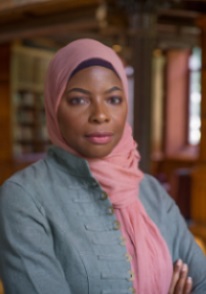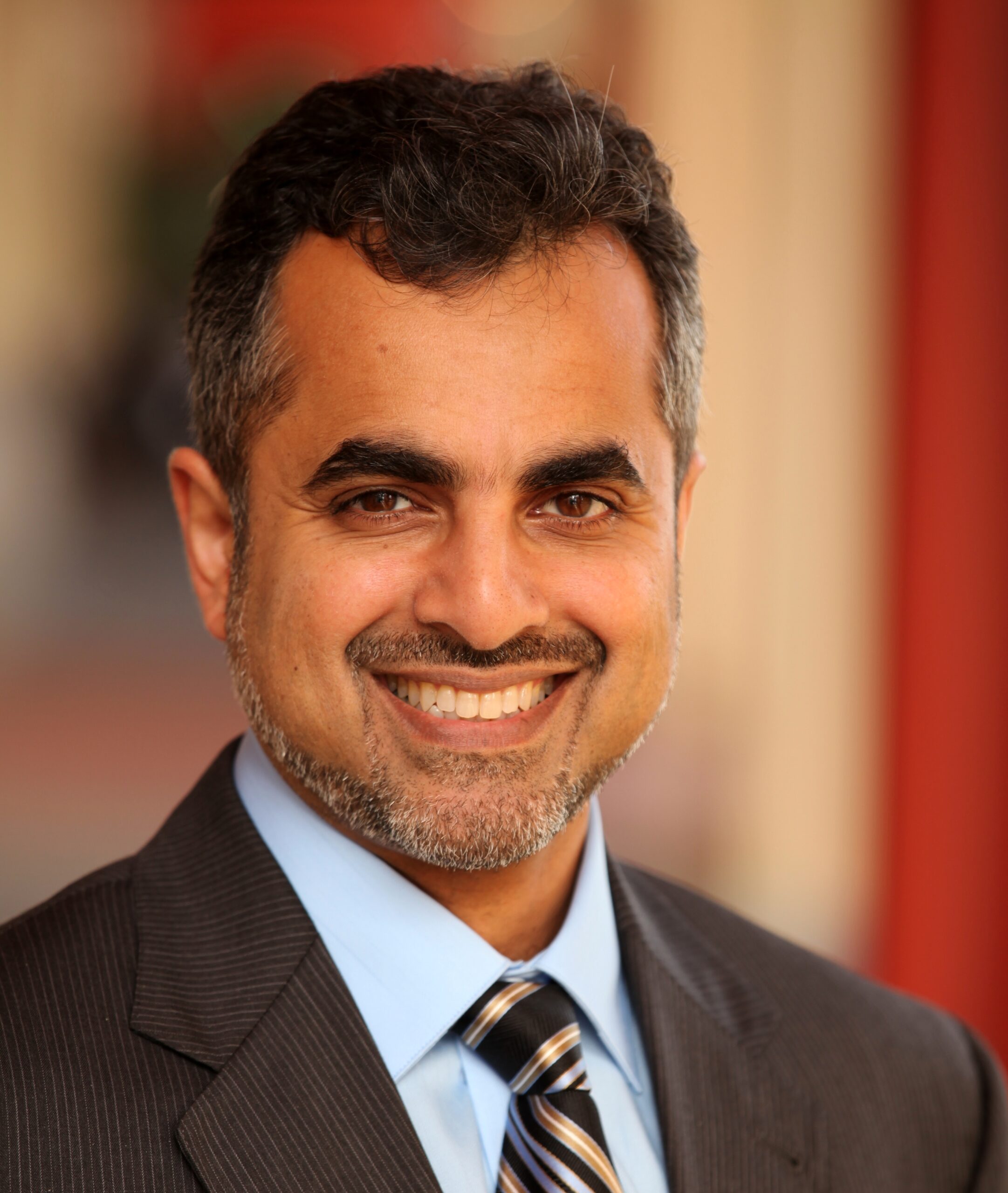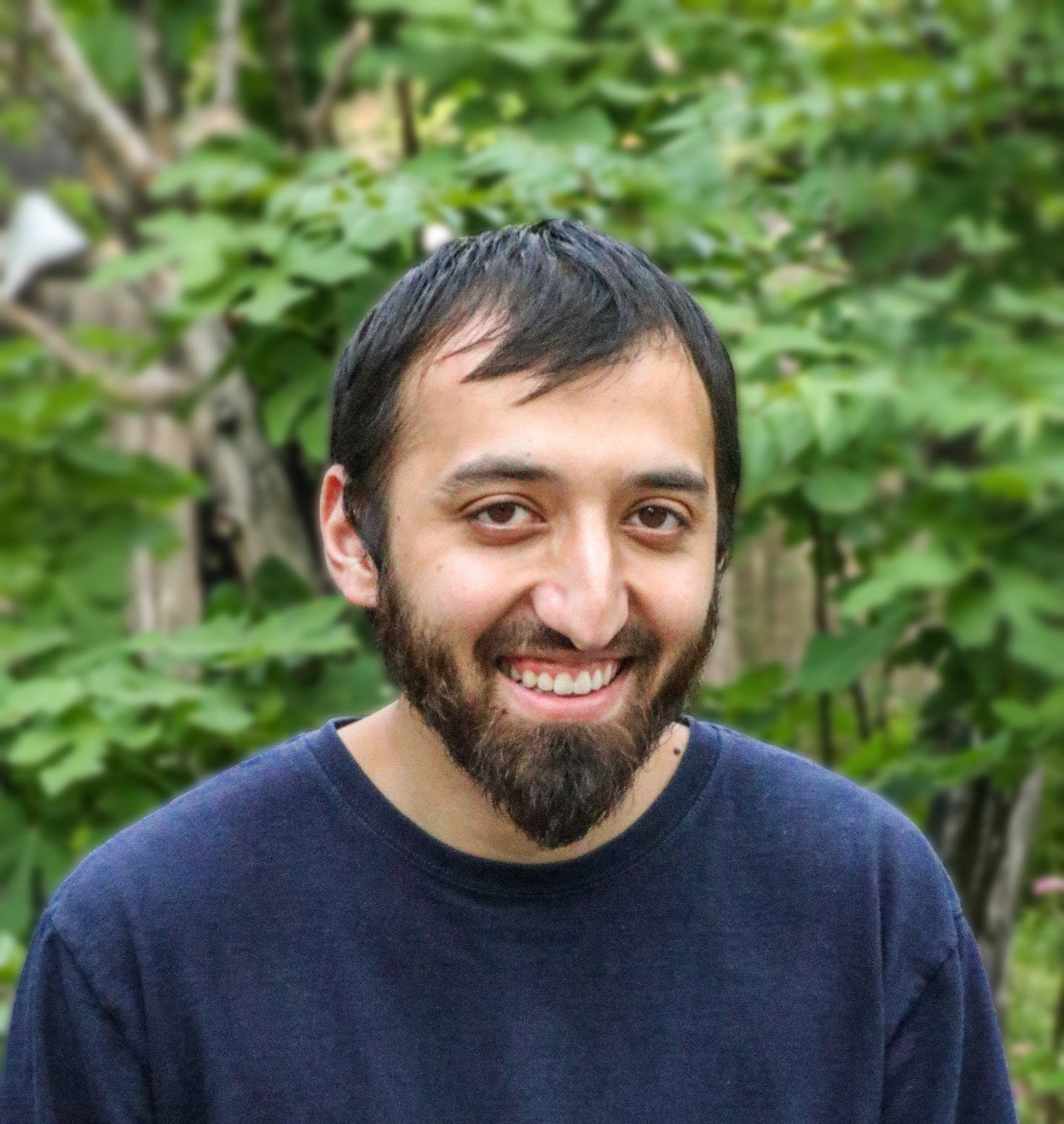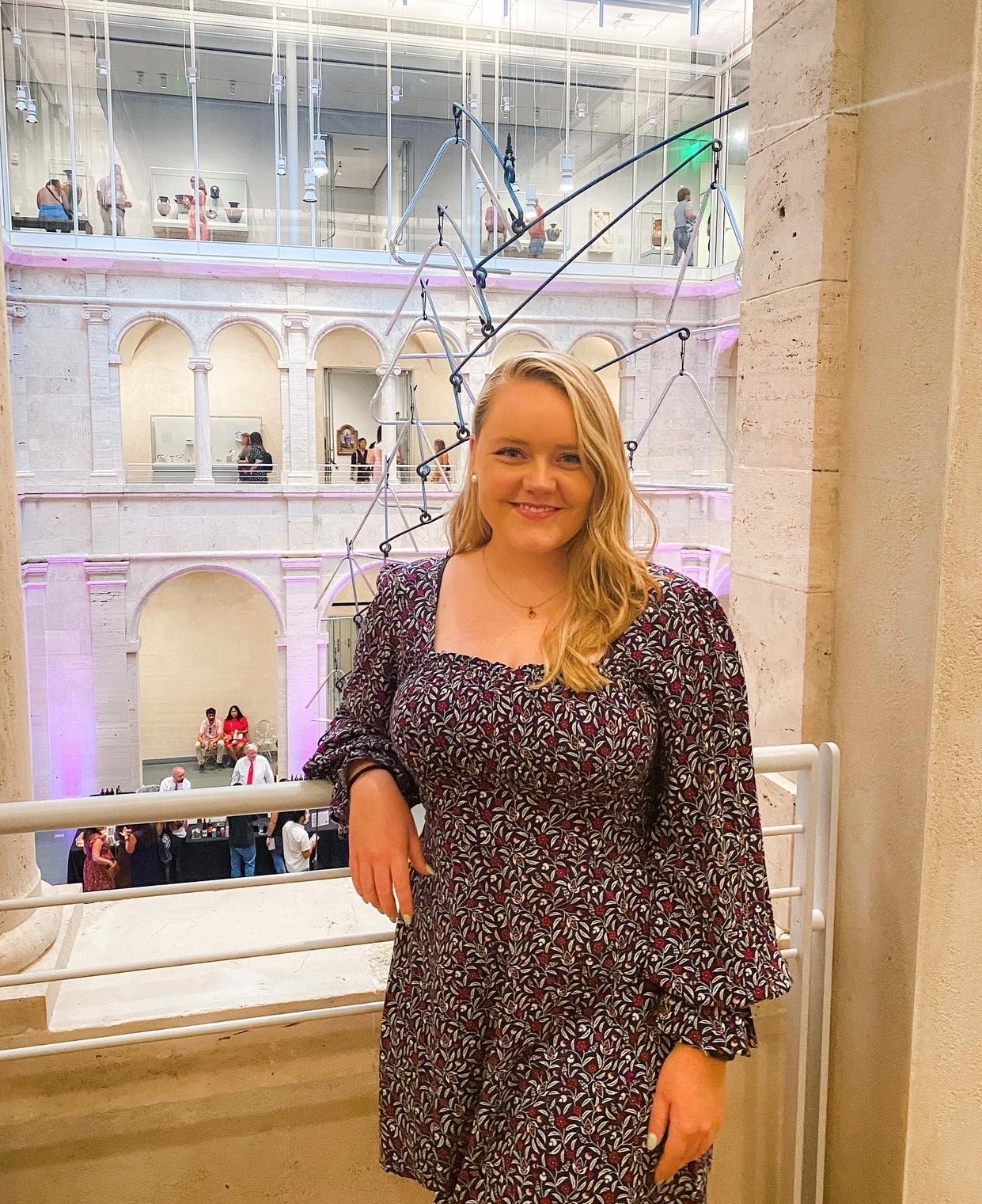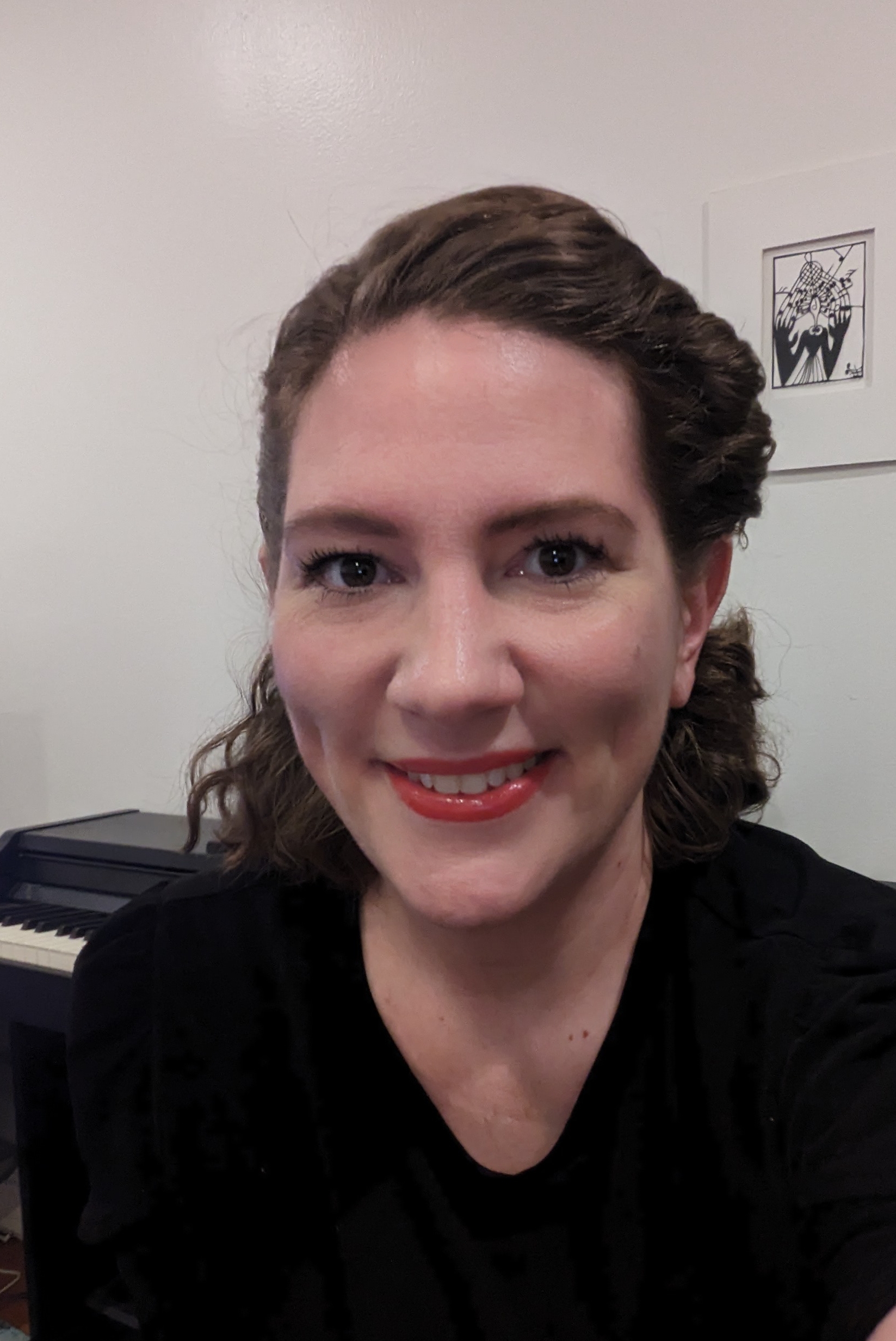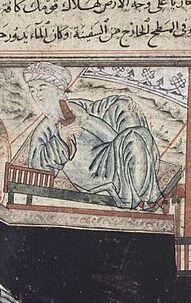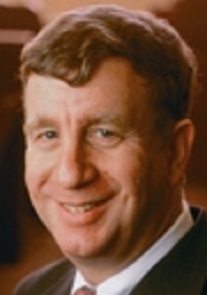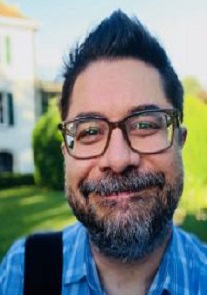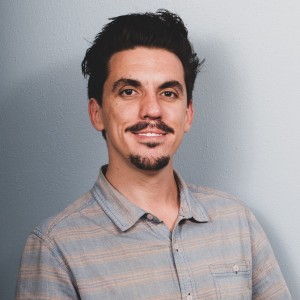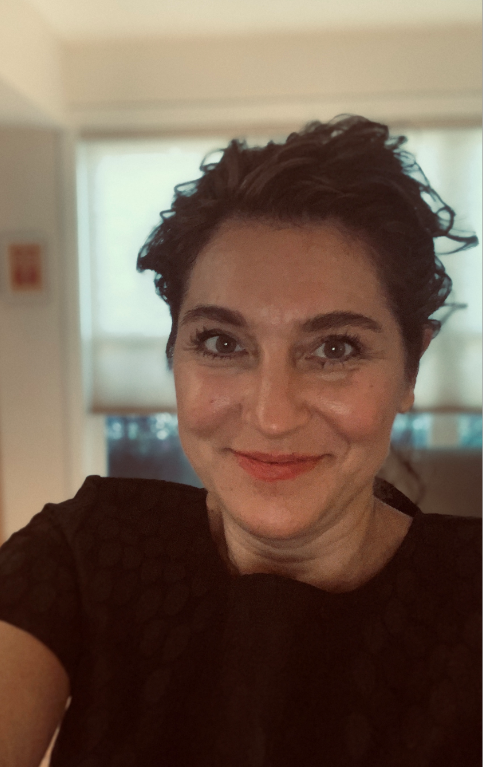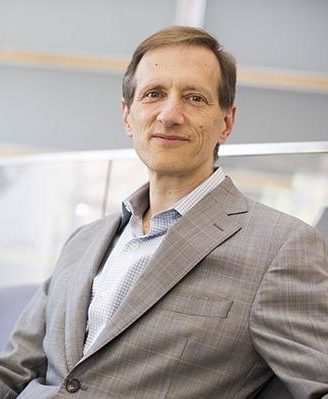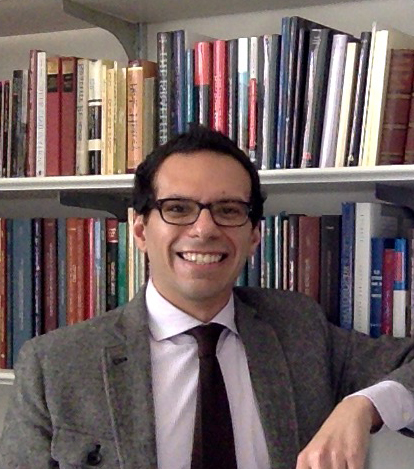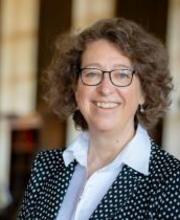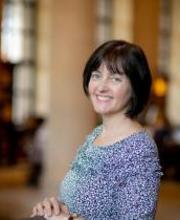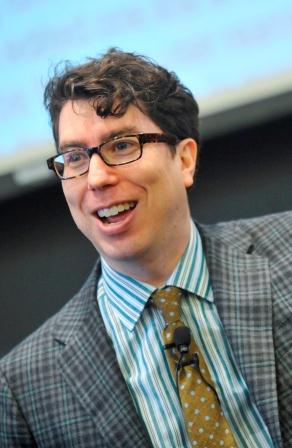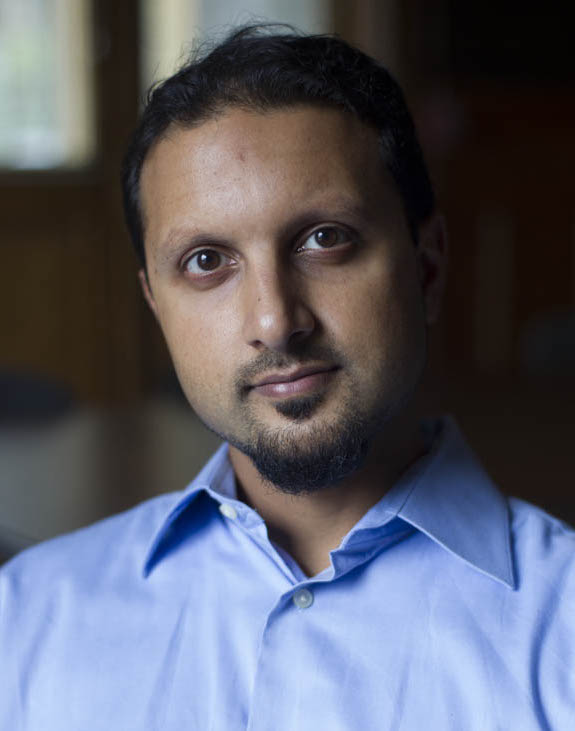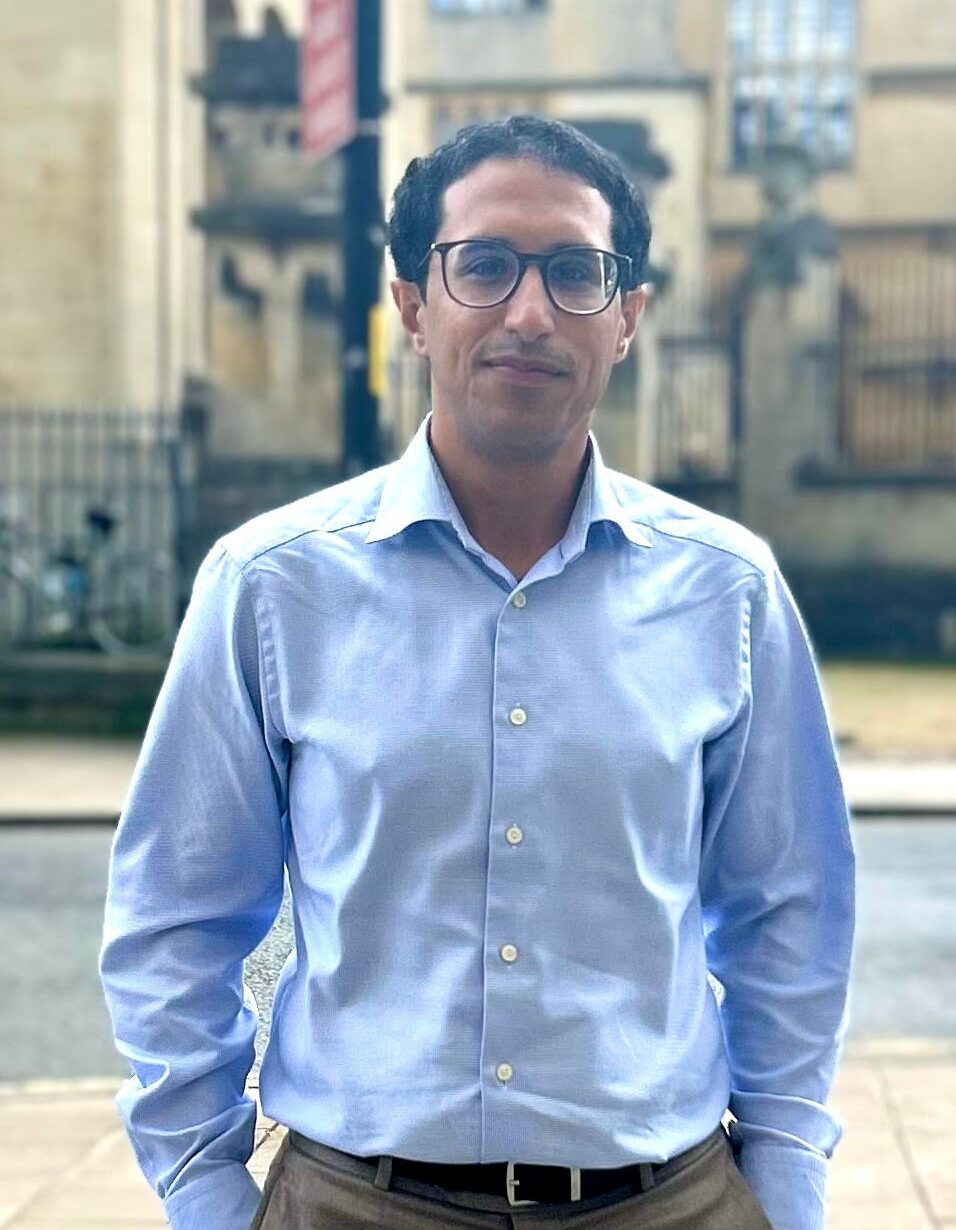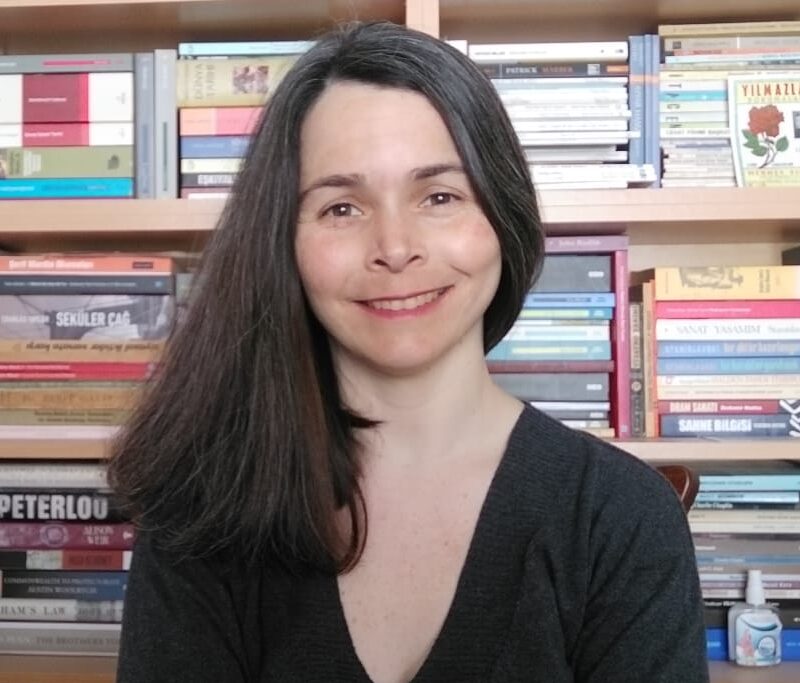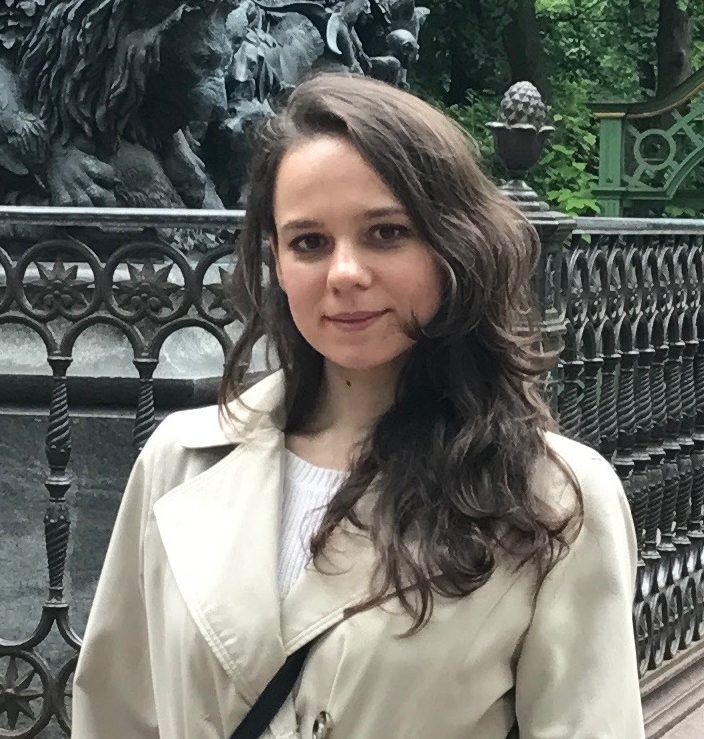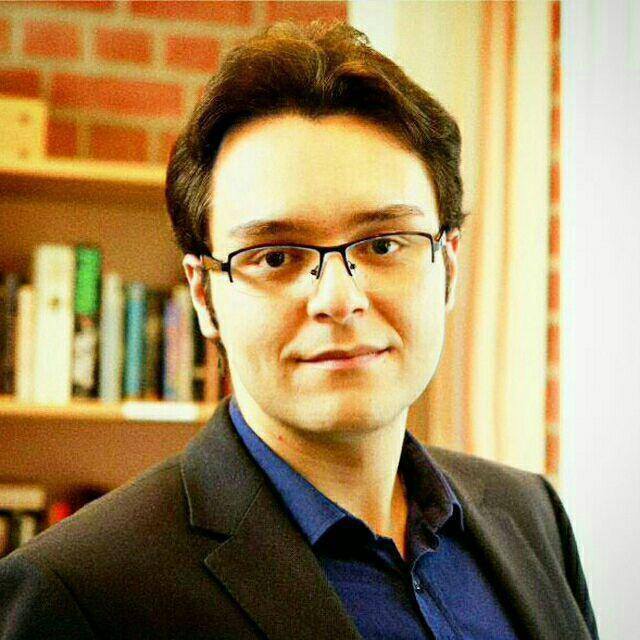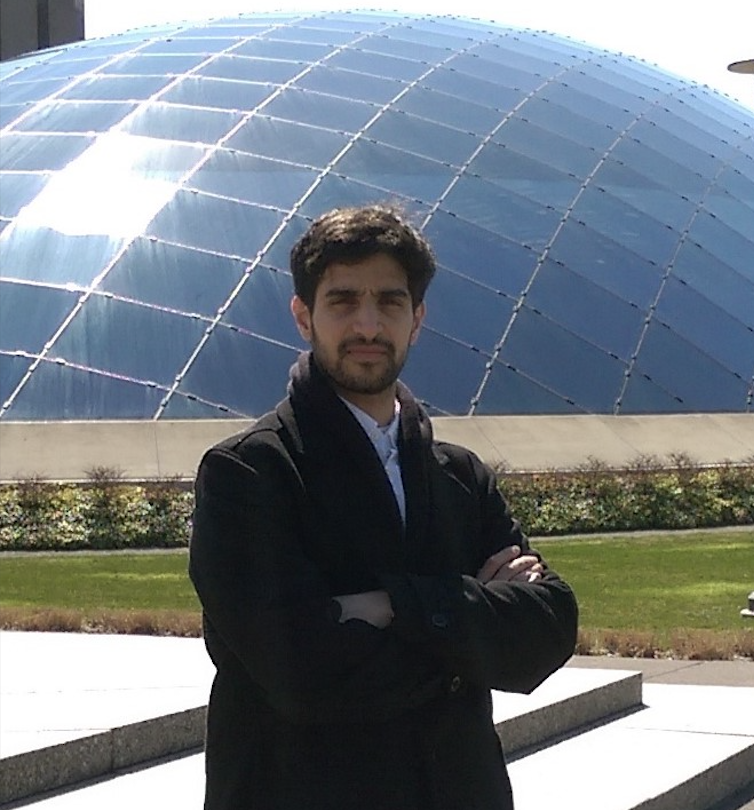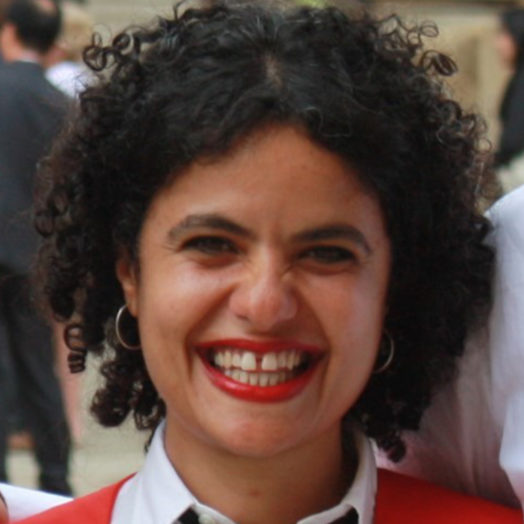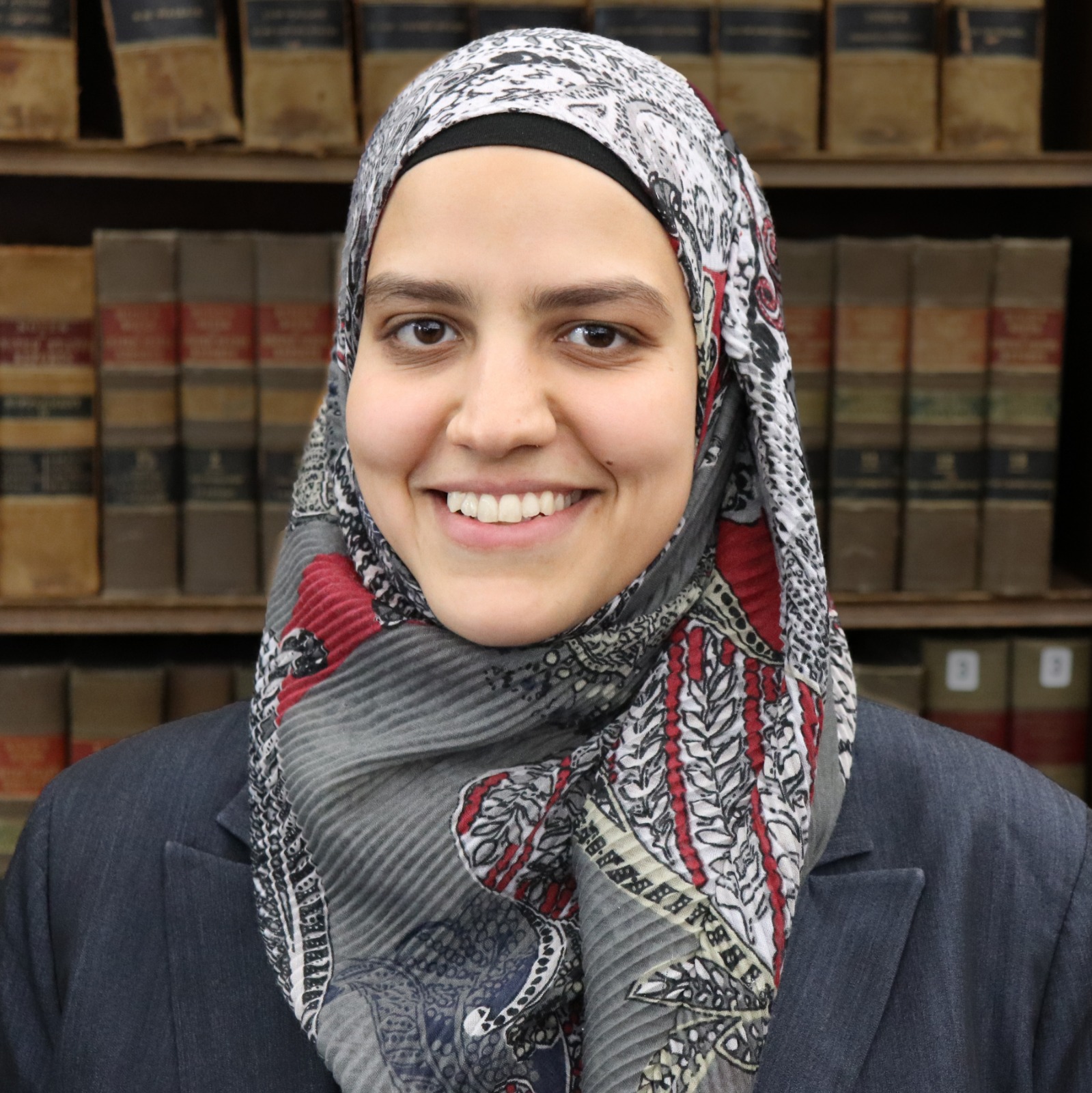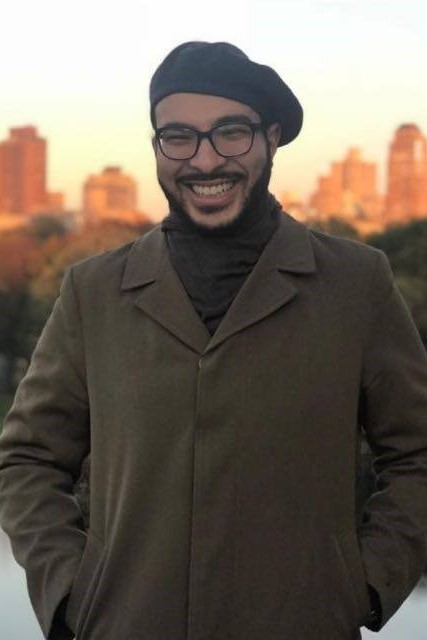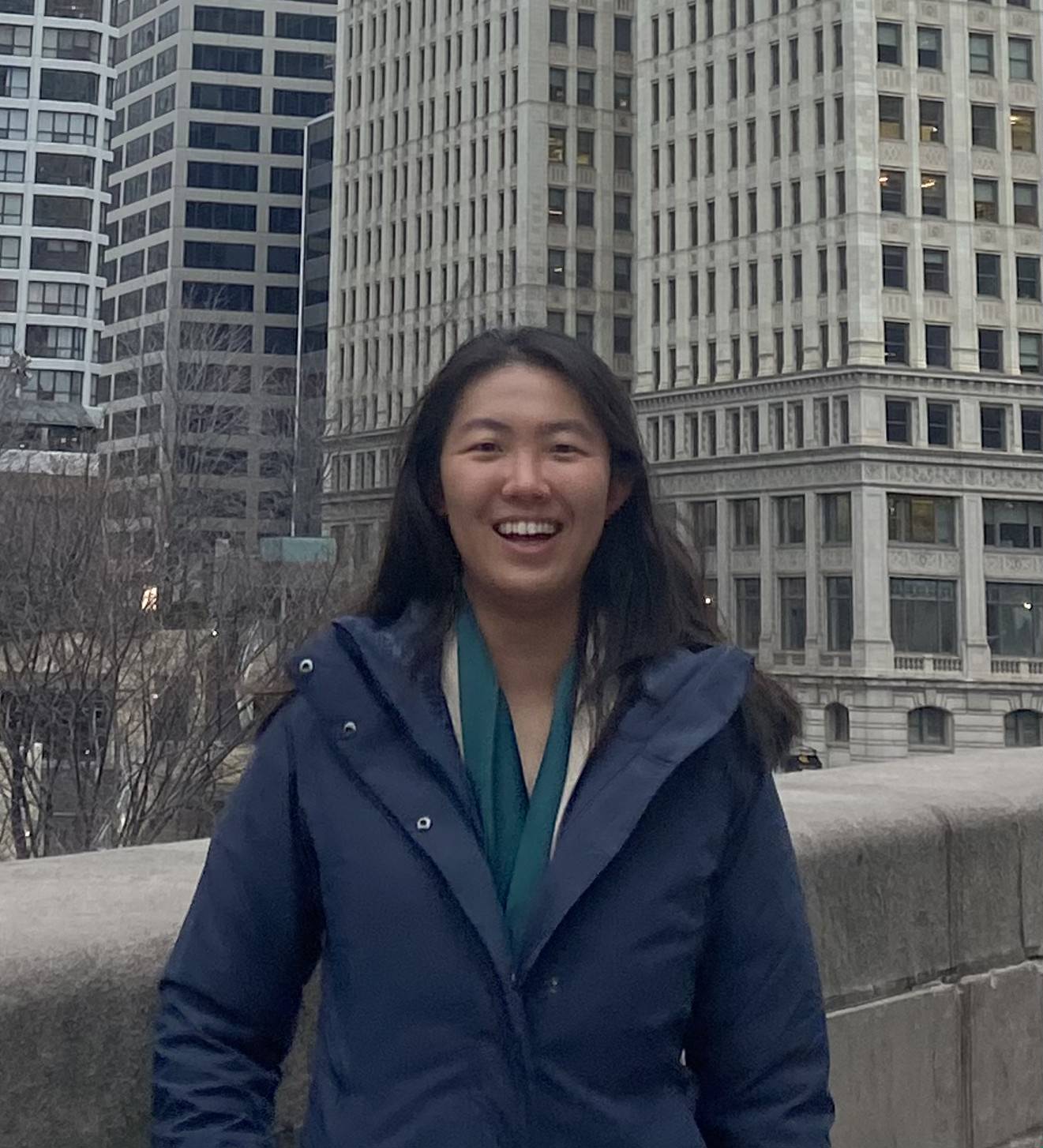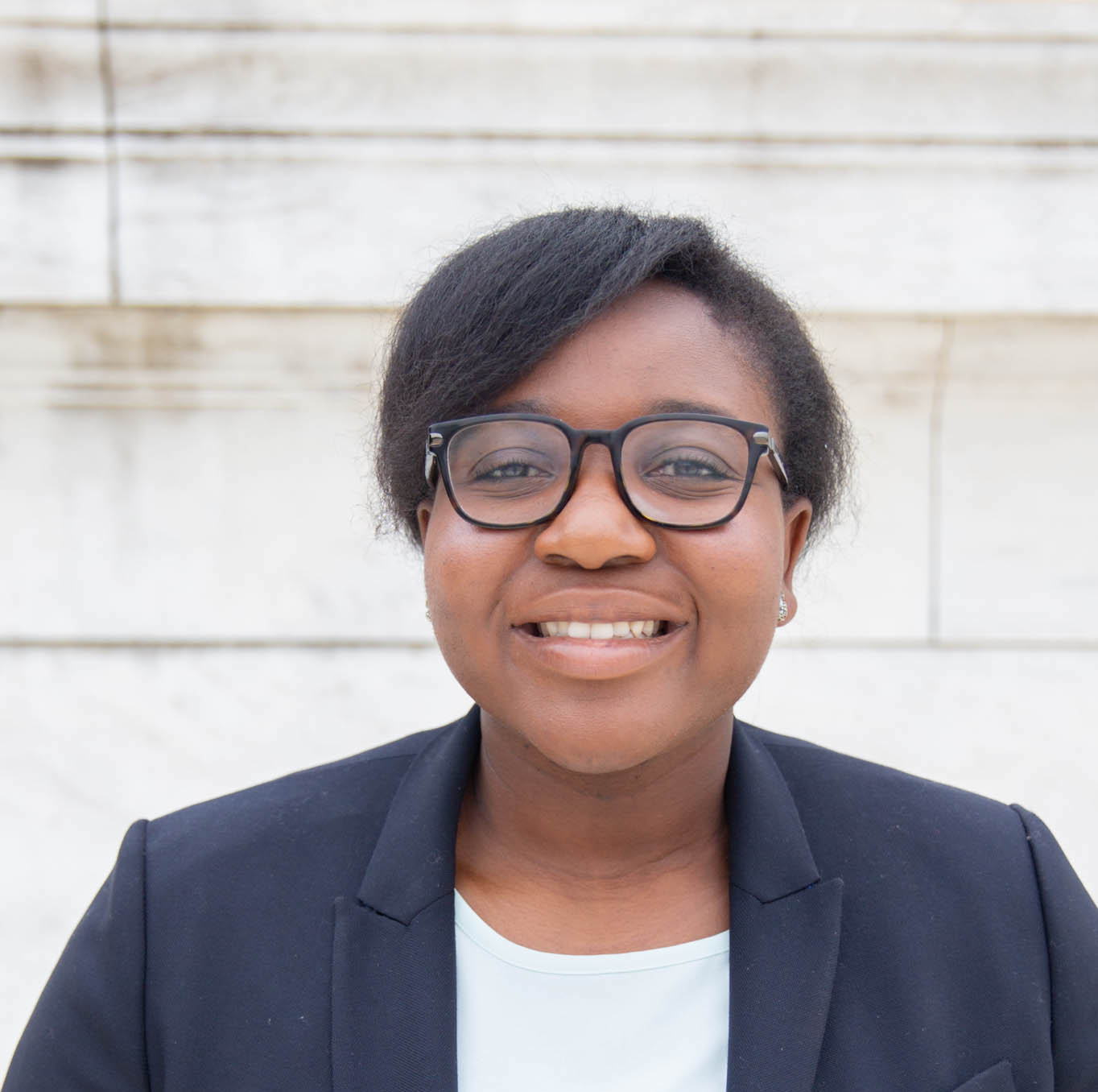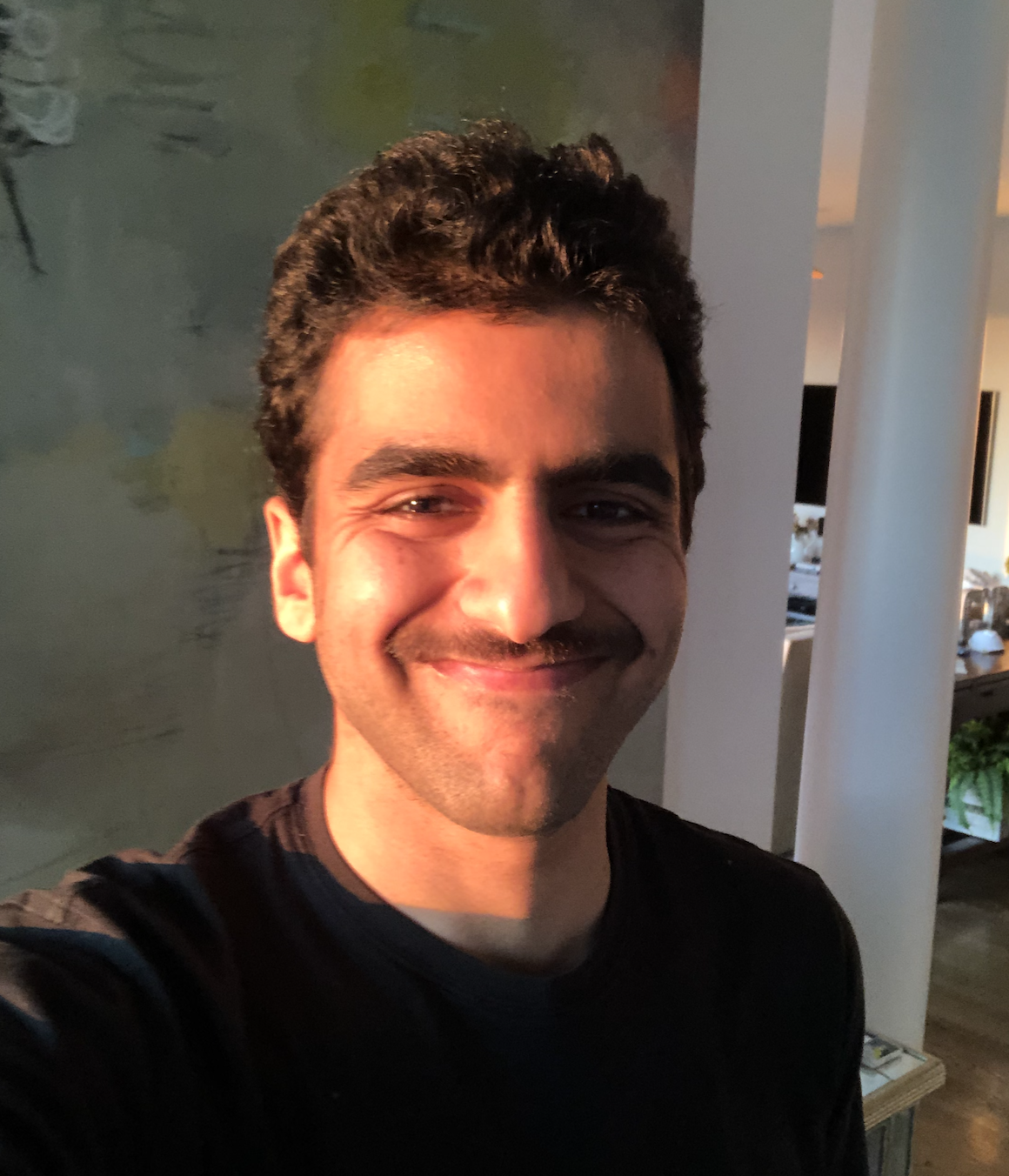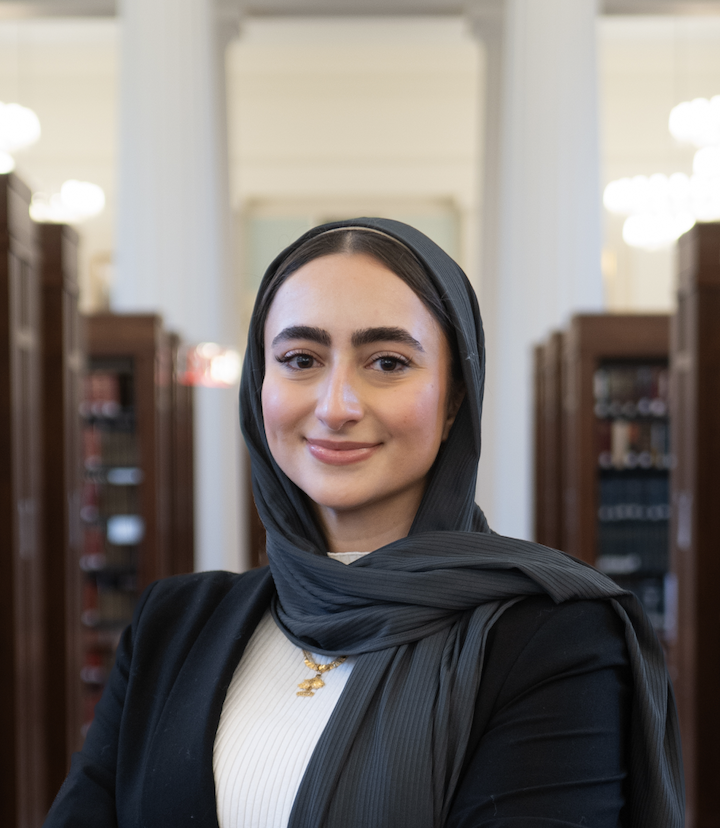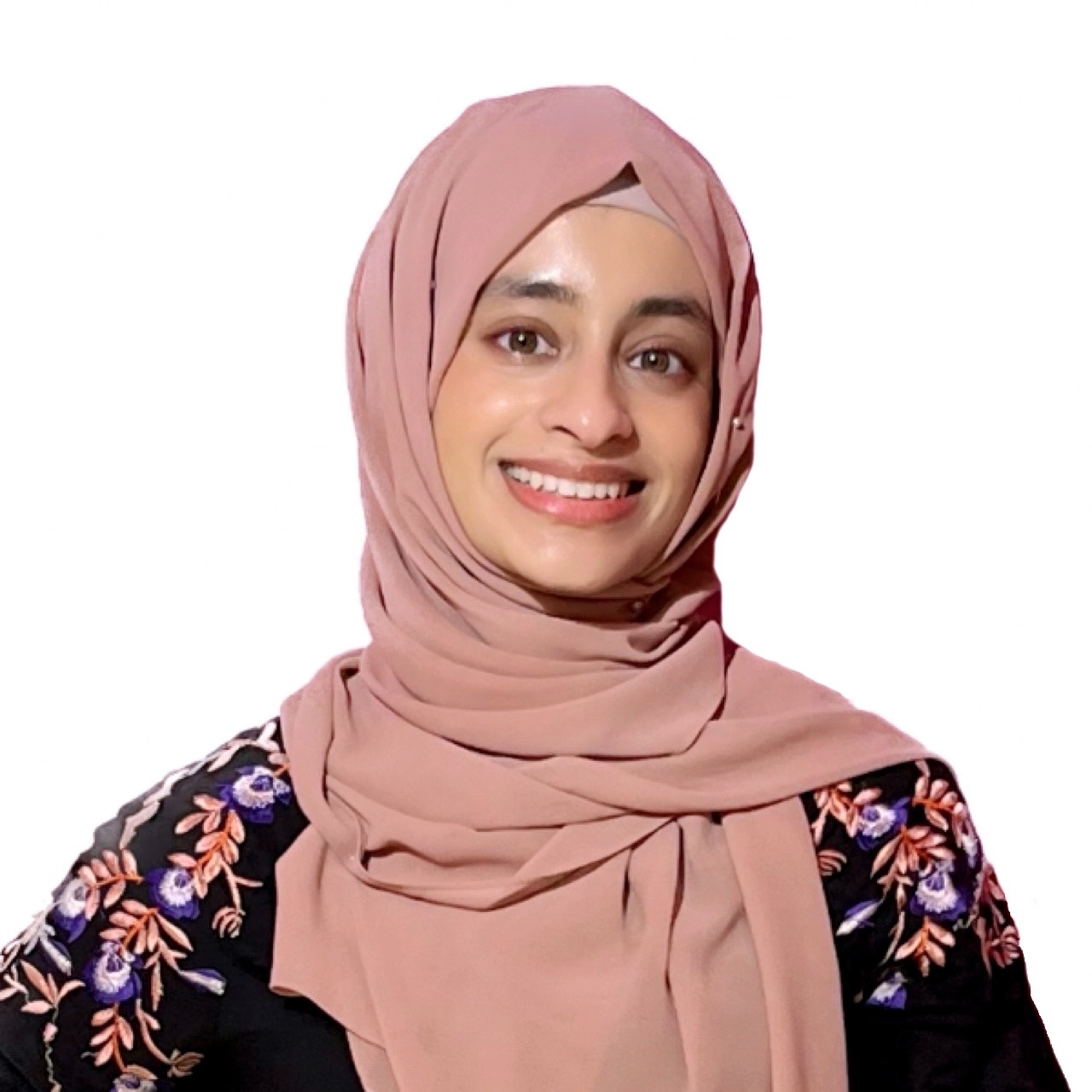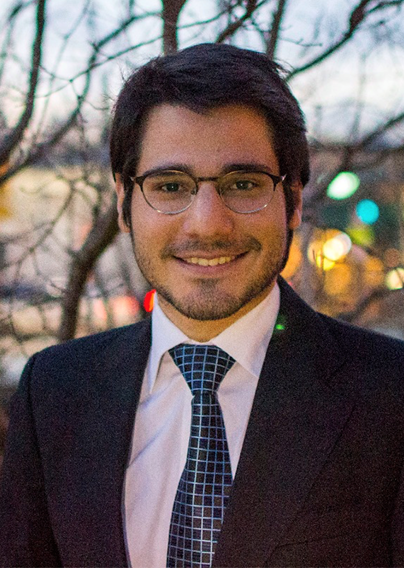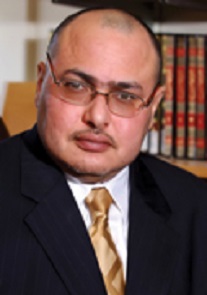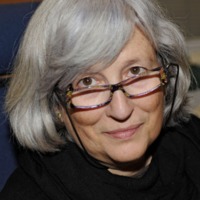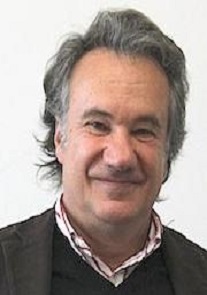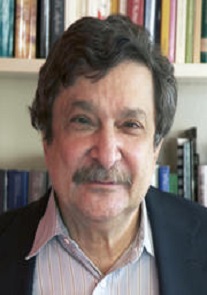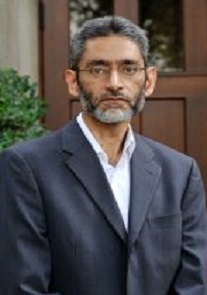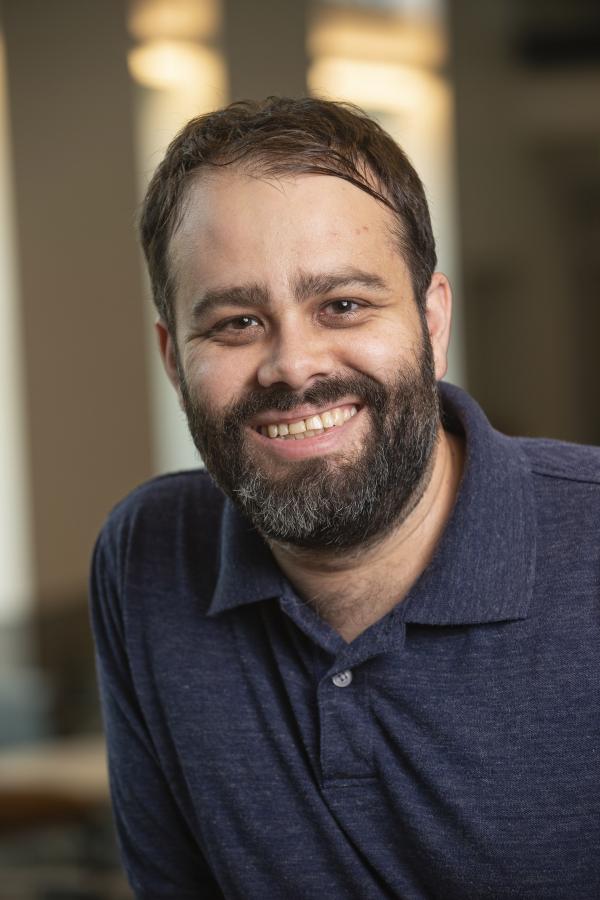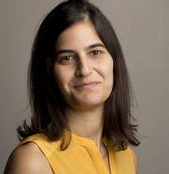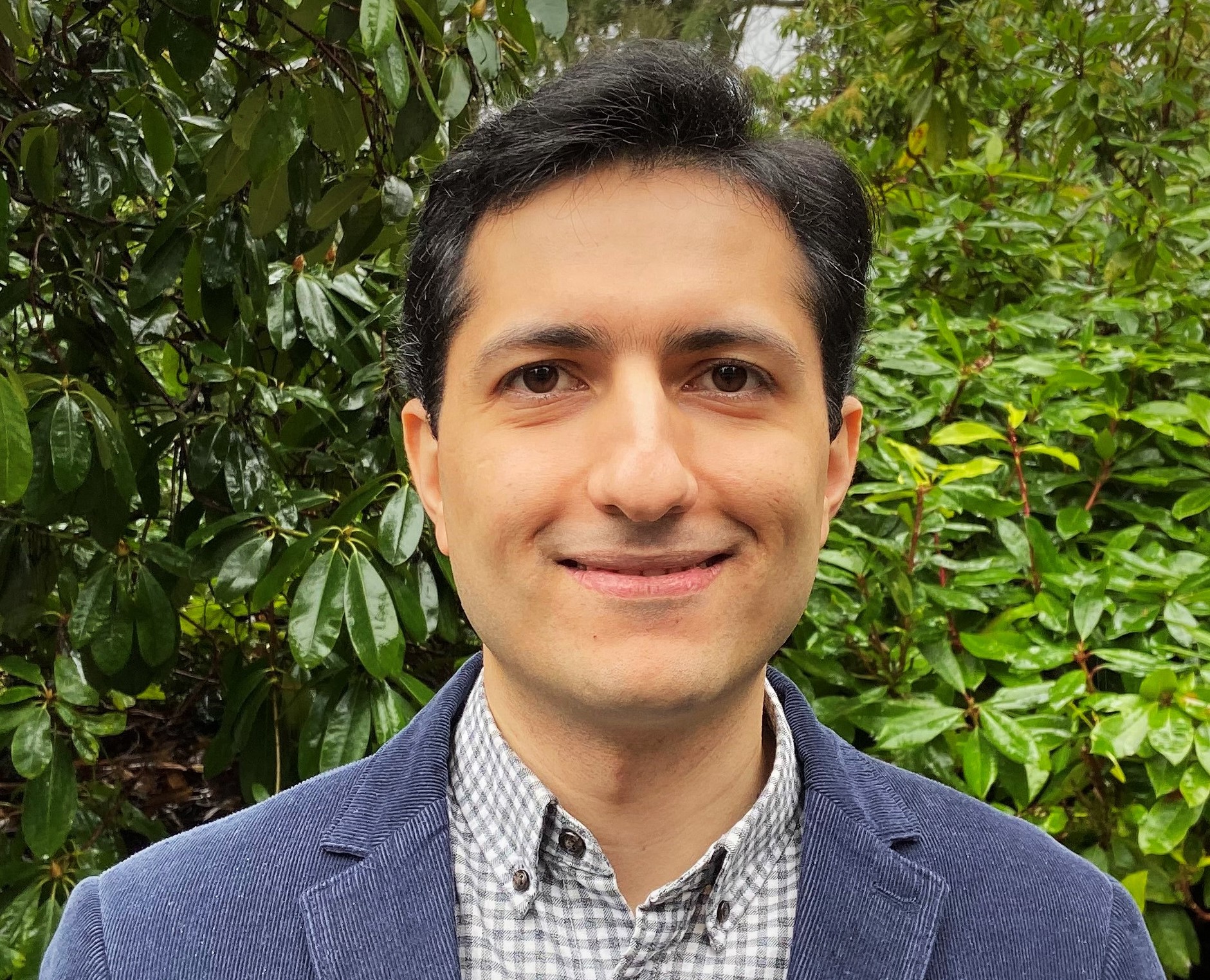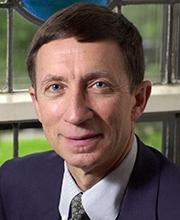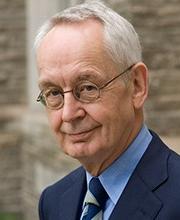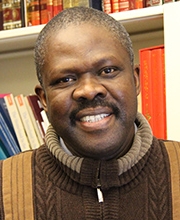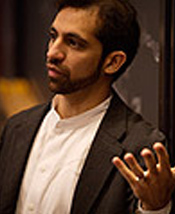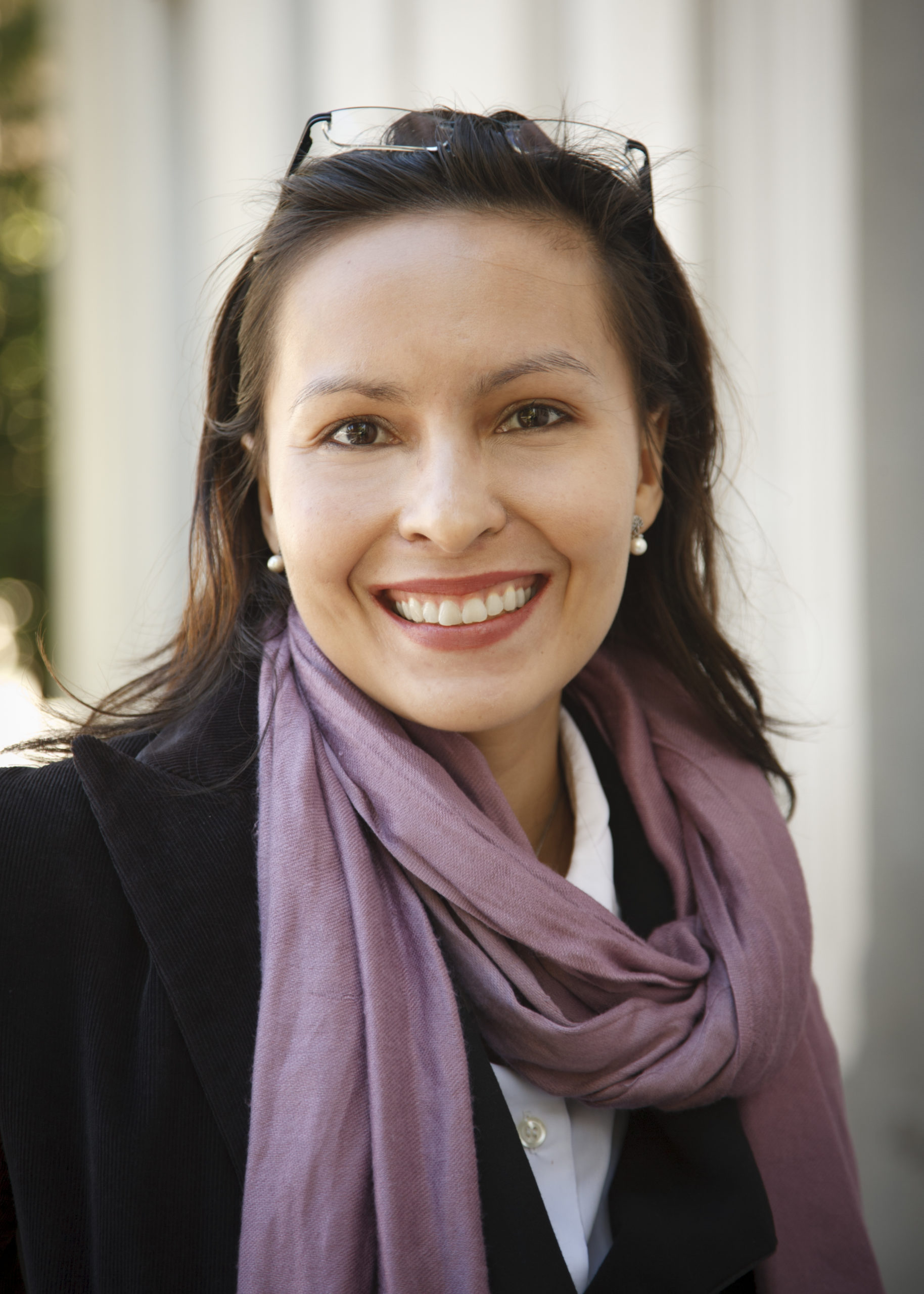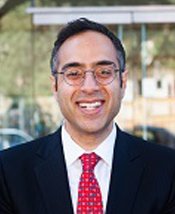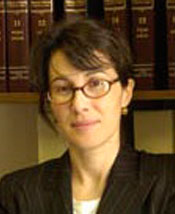Faculty & Staff

Professor Intisar A. Rabb is a Professor of Law, Professor of History, and the Faculty Director of the Program in Islamic Law at Harvard Law School. She has held appointments as a Susan S. and Kenneth L. Wallach Professor at the Radcliffe Institute for Advanced Study, as an Associate Professor at NYU Department of Middle Eastern and Islamic Studies and at NYU Law School, and as an Assistant Professor at Boston College Law School. She previously served as a law clerk for Judge Thomas L. Ambro of the United States Court of Appeals for the Third Circuit, as a Temple Bar Fellow in London with the American Inns of Court, and as a Carnegie Scholar for her work on contemporary Islamic law.
In 2015, in partnership with the Berkman Klein Center for Internet and Society, support from the Luce and MacArthur Foundations, and collaborations with myriad scholars and institutions, she launched SHARIAsource – an online portal designed to provide universal access to the world’s information on Islamic law and history, and to facilitate new research with the use of AI tools.
She has published on Islamic law in historical and modern contexts, including the monograph, Doubt in Islamic Law (Cambridge University Press 2015), the edited volumes, Justice and Leadership in Early Islamic Courts (with Abigail Balbale, Harvard University Press, 2017) and Law and Tradition in Classical Islamic Thought (with Michael Cook et al., Palgrave 2013), and numerous articles on Islamic constitutionalism, on Islamic legal canons, and on the early history of the Qur'an text.
She received a BA from Georgetown University, a JD from Yale Law School, and an MA and PhD from Princeton University. She has conducted research in Egypt, Iran, Syria, and elsewhere.

Rashid Alvi is the Executive Director of the Program in Islamic Law. He has served as a chief strategy officer, manager, and deal advisor with strategic, fiscal, and operations leadership.
He started his career at the law firm of Davis Polk & Wardwell, where he specialized in mergers and acquisitions. He then moved to Wall Street, working at Lehman Brothers and Goldman Sachs, where he advised the Goldman Sachs Investment Partners fund and the GS Principal Strategies desk on their private investments as lead transactional lawyer. He subsequently worked at two healthcare companies as Chief Strategy Officer and V.P. of Operations. In between those positions, he was the Executive Director of the Islamic Legal Studies Program at Harvard Law School, where he helped launch SHARIAsource. Mr. Alvi is also a principal at a boutique business advisory firm.
Mr. Alvi holds a J.D. from Columbia Law School, an M.A. from the University of Southern California, and a B.A. from Binghamton University.

Ibrahim Khan is the Managing Editor at the Program in Islamic Law. He is currently a PhD candidate in political theory at the University of Chicago. He researches international law from anticolonial and postcolonial perspectives, asking in particular how the colonized world received and responded to changes in norms surrounding the use of force, and how that perspective might revise our understanding of sovereignty and international order. Previously, Ibrahim completed a master's in Islamic law at the University of Oxford.

Emma Reilly is the Program Coordinator for the Program in Islamic Law and Faculty Assistant to Professor Intisar Rabb. She received a BA in History, American Studies and Sociology at Providence College and her career interests lie in higher education. She has worked at HLS since 2021.

Irene K. F. Kirchner is the Digital Humanities Specialist at the Program in Islamic Law. She is currently finishing her Ph.D. in the department of Arabic and Islamic Studies at Georgetown University. In her research, she uses digital methods to trace the circulation history of Hadith forgeries and the evolution of Hadith forgeries as a genre of Sunni Hadith literature. In addition to her Magister degree in Literature, Philosophy and Islamic Studies from Tübingen University, Irene obtained graduate training in Natural Language Processing, Advanced Python and the Digital Humanities. She currently serves as the director of the Islamicate Digital Humanities Network which she co-founded in 2018.

Noah Tashbook is the Research Data Scientist for the SHARIAsource lab at the Program in Islamic Law. He is responsible for the development of research software and overseeing the data analytics components of the lab. He has long been involved in FOSS and information accessibility projects, including in higher education and libraries, and has previously done research in Washington, California, and throughout the Sahara region.

William P. Alford is the Vice Dean for the Graduate Program and International Legal Studies and the Jerome A. and Joan L. Cohen Professor of Law at Harvard Law School. He is a scholar of Chinese law and legal history. He is the founding Chair of the Harvard Law School Project on Disability which provides pro bono services on issues of disability in China, Bangladesh, the Philippines, Vietnam and several other nations. He is Lead Director and Chair of the Executive Committee of the Board of Directors of Special Olympics International (which serves individuals with intellectual disabilities in more than 170 jurisdictions around the world). In 2008, Special Olympics honored him for his work for persons with intellectual disabilities in China.
Professor Alford was awarded an honorary doctorate in law by the University of Geneva in 2010 and has been an honorary professor or fellow at Renmin University of China, Zhejiang University, the National College of Administration, and the Institute of Law of the Chinese Academy of Social Science. Among other honors are the inaugural O’Melveny & Myers Centennial Award, the Kluwer China Prize, the Qatar Pearls of Praise Award, an Abe (Japan) Fellowship, and the Harvard Law School Alumni Association Award. In 2008, he was a finalist for Harvard Law School’s Sacks-Freund Teaching Award.
Professor Alford has delivered endowed lectureships at leading universities around the world and serves on university advisory boards and the editorial boards of learned journals in several jurisdictions. A member of the Council on Foreign Relations and the National Committee on US-China relations, Professor Alford has been a dispute resolution panelist under the U.S.-Canada Free Trade Agreement and the North American Free Trade Agreement. He has served as a consultant or advisor to multilateral organizations, various offices of the United States government, members of Congress, foreign governments, foundations, companies and not-for-profit organizations.
His books include To Steal a Book is an Elegant Offense: Intellectual Property Law in Chinese Civilization (Stanford University Press 1995), Raising the Bar: The Emerging Legal Profession in East Asia (Harvard East Asian Legal Studies 2007), 残疾人法律保障机制研究 (A Study of Legal Mechanisms to Protect Persons with Disabilities) (Huaxia Press 2008, with Wang Liming and Ma Yu’er), Prospects for the Professions in China (Routledge 2011, with William Kirby and Kenneth Winston) and Taiwan and International Human Rights: A Story of Transformation (Springer 2018, with Jerome Cohen and Lo Chang-fa).
Professor Alford is a graduate of Amherst College (B.A.), the University of Cambridge (LL.B.), Yale University (graduate degrees in History and in East Asian Studies) and Harvard Law School (J.D.).

Christopher T. Bavitz is the WilmerHale Clinical Professor of Law at Harvard Law School. He is also Managing Director of HLS’s Cyberlaw Clinic, based at the Berkman Klein Center for Internet & Society. And, he is a Faculty Co-Director of the Berkman Klein Center. Chris teaches the Counseling and Legal Strategy in the Digital Age and Music & Digital Media seminars, and he concentrates his practice activities on intellectual property and media law (particularly in the areas of music, entertainment, and technology).
He oversees many of the Cyberlaw Clinic’s projects relating to copyright, speech, advising of startups, and the use of technology to support access to justice, and he serves as the HLS Dean’s Designate to Harvard’s Innovation Lab. Chris's research and related work at the Berkman Klein Center addresses intermediary liability and online content takedown regimes as well as regulatory, ethical, and governance issues associated with technologies that incorporate algorithms, machine learning, and artificial intelligence.
Chris's research and related work at the Berkman Klein Center addresses intermediary liability and online content takedown regimes as well as regulatory, ethical, and governance issues associated with algorithms, machine learning, and artificial intelligence.
Chris received his B.A., cum laude, and Certificate in Peace and Justice Studies from Tufts University in 1995 and his J.D. from University of Michigan Law School in 1998.

Matthew Cook is a Digital Scholarship Program Manager for the Harvard Library. In this role, he creates digital tools and supports faculty, staff, and students in the use of emerging computational methods. Before coming to Harvard, he worked as Head of Emerging Technologies for the University of Oklahoma Libraries. Cook’s interests include digital scholarship and 3D technologies, including virtual reality.
His work has been published in the Journal of Academic Librarianship, Journal of Library Administration, and other journals.
He holds an MLIS from the School of Library and Information Science at the University of Oklahoma.

Sarah DeMott is a Research Librarian specializing in Middle East Studies. Sarah is also Faculty Librarian for the Freshman Seminar Program for Harvard College Library for which she coordinates library outreach, information literacy, and instructional support. DeMott's areas of research specialty include working with: Qualitative Research, Digital Scholarship, and Cartography in the Humanities and Social Sciences.
Sarah received her MS and Ph.D from New York University.

Sebastian Diaz is the Berkman Klein Center's Directory of Technology and he coordinates and advises the Program in Islamic Law on its digital projects. He guides the Berkman Klein Center's IT enterprise through a landscape of ever-changing technology and priorities. Sebastian manages its technology group, which consists of a Harvard renowned development team, an infrastructure and workplace computing team, and a technical project management team.
Sebastian received his B.A. in Biology and French Literature from Williams College.

Gayle Fischer joined the Harvard Law School Library in 2016 as the Librarian for Islamic Law. She is primarily responsible for the selection, cataloging, and management of materials for the Islamic and Middle Eastern law collections, in addition to providing reference and instruction services. As a member of the Middle East Librarians Association, she serves on the Web and Social Media Committee and the Metrics Working Group. Her professional and research interests include digital scholarship/digital humanities, ontology(-ies), and Arabic poetry.
She obtained her B.A. in Philosophy and Arabic Language and Literature from Portland State University and holds an M.A. in Middle Eastern Studies and an M.S.I.S. from the University of Texas at Austin.

Jessica Fjeld is a Clinical Instructor at Harvard Law School’s Cyberlaw Clinic and serves as the Clinic’s Assistant Director. She is also a Lecturer on Law at HLS. She works in diverse areas including intellectual property, media and entertainment (particularly public media), freedom of expression, and law and policy relating to government and nonprofit entities. She works with SHARIAsource on copyright law and matters of intellectual property and technology.
She received a JD from Columbia Law School, where she was a James Kent Scholar and Managing Editor of the Journal of Law and the Arts; an MFA in Poetry from the University of Massachusetts; and a BA from Columbia University.

Gary King is the Albert J. Weatherhead III University Professor and the Director of the Institute for Quantitative Social Science (IQSS) at Harvard University. One of the most influential political scientists of his generation, his work has been influential in fields from legislative redistricting to public health programs, and from social security to government censorship.
He is the author of several books and articles, including A Solution to the Ecological Inference Problem: Reconstructing Individual Behavior from Aggregate Data (Princeton University Press 1997) and Unifying Political Methodology: The Likelihood Theory of Statistical Inference (Cambridge University Press 1989). He is also the co-founder of several technology firms, including Crimson Hexagon (now part of Brandwatch), Learning Catalytics (now part of Pearson), OpenScholar, Perusall, and Thresher.
He graduated with his PhD from the University of Wisconsin at Madison. More information is available at King's faculty website.

Gabriel Pizzorno is a lecturer in the Department of History at Harvard University and the faculty chair of Harvard’s Digital Scholarship Support Group. His research spans a broad range of subjects, from imperialism and power centralization in the ancient Near East to aspects of personhood and dehumanization in concentration camps during the Holocaust. These diverse research interests are joined by two common threads: a focus on material culture as historical source, and the use of advanced digital tools to enable the exploration and interrogation of large and complex datasets. Pizzorno’s work attempts to bridge the gap between the detailed enquiry necessary to comprehend small-scale phenomena and the overarching syntheses required to place them in their proper historical context.
Before joining the History Department at Harvard in 2014, Pizzorno received a PhD in Art and Archaeology of the Mediterranean World from the University of Pennsylvania.

Rashmi Singhal is the Director of Arts and Humanities Research Computing at Harvard University. With a background in software development, she works to promote and expand the use of digital humanities methods in teaching and research. Singhal previously worked on the HarvardX online learning platform, and before coming to Harvard, she worked at the New England Journal of Medicine, Library of Congress, and Tufts University.
She holds a BS in Computer Science and Archaeology and a MS in Computer Science, both from Tufts University.

Martha Whitehead is the Vice President for the Harvard Library and University Librarian, and Roy E. Larsen Librarian for the Faculty of Arts and Sciences, at Harvard University. Before coming to Harvard, she was the Vice-Provost (Digital Planning) and University Librarian at Queen’s University in Kingston, Ontario. She also worked for 19 years at the University of British Columbia Library in Vancouver. Whitehead is the past president of the Canadian Association of Research Libraries (CARL), and she received CARL Distinguished Service to Research Librarianship Award in 2019.
Her work has been published in the Journal of Academic Librarianship and other journals, and she holds a BA and MLS from the University of British Columbia.

Suzanne Wones is the Associate University Librarian for Digital Strategies and Innovation at Harvard Library. In this role, she leads the library’s data, technology, and digital strategy efforts. Before her current role, she served as the Executive Director of the Harvard Law School Library from 2012 to 2015, and previously worked in other positions in the libraries at Harvard University.
Suzanne earned her MS in Information, Library and Information Services from the University of Michigan, and holds other degrees from the University of New Hampshire and University of Massachusetts at Amherst.

Jonathan Zittrain is the George Bemis Professor of International Law at Harvard Law School and the Harvard Kennedy School of Government, and Professor of Computer Science at the Harvard School of Engineering and Applied Sciences. He is also the Director of the Harvard Law School Library and Vice Dean for Library and Information Resources, and he is Co-Founder, Director, and Faculty Chair of the Berkman Klein Center for Internet & Society.
Zittrain conducts research, writes, and teaches courses on cyber law, intellectual property, privacy law, artificial intelligence, and other topics. He is the author of The Future of the Internet and How to Stop It (Yale University Press 2008), and his articles have appeared in academic journals, including the Harvard Law Review, Harvard Journal of Law and Technology, and University of Chicago Law Review, and in other publications, including The Atlantic and The New York Times.
He holds a bachelor's summa cum laude in cognitive science and artificial intelligence from Yale Universityin 1991, a J.D. magna cum laude from Harvard Law School in 1995, and a master of public administration from Harvard's John F. Kennedy School of Government in 1995.
More information is available on his website, www.jz.org.
Research Fellows

Faiz Ahmed (PhD, UC Berkeley; JD, UC College of Law, San Francisco) is currently Joukowsky Family Distinguished Associate Professor of Modern Middle Eastern History at Brown University. Ahmed’s primary specializations are the late Ottoman Empire, Afghanistan, and the British Empire, as well as diasporic communities tied to the region we today call the Middle East. His core research and teaching engage questions of human mobility, travel, and migration; social histories of Islamic law and learning; and the intersections of constitutionalism, citizenship, and diplomacy.
Ahmed’s first book, Afghanistan Rising: Islamic Law and Statecraft between the Ottoman and British Empires (Harvard University Press), was awarded the American Historical Association’s John F. Richards Prize in 2018. His current research explores historical ties and engagements of the Ottoman Empire in the Americas, with a focus on social, economic, and legal connections to the United States and Canada during the long nineteenth century. His published articles have appeared in journals of law, history, and Middle East Studies, including Comparative Studies of South Asia, Africa, and the Middle East; Global Jurist; International History Review; International Journal of Middle East Studies; Iranian Studies; Jadaliyya; Osmanlı Araştırmaları (Journal of Ottoman Studies); Journal of the Ottoman and Turkish Studies Association; and Perspectives on History. Dr. Ahmed is also co-organizer with Brown University colleagues Michael Vorenberg, Emily Owens, and Rebecca Nedostup of the Brown Legal History Workshop and the Brown Legal Studies collaborative.

Mohammed Allehbi is the PIL-LC Research Fellow at the Program in Islamic Law at Harvard Law School and the Library of Congress for the 2023–2024 academic year. He specializes in law and governance in the Islamic Near East and the Mediterranean during late antiquity and the Middle Ages. After earning his master's degree in Middle Eastern studies from the University of Chicago in 2014, he received his doctorate in history from Vanderbilt University in 2021, where he was a senior lecturer in the Department of Classical and Mediterranean Studies. His first article, “It is Permitted for the Amīr but not the Qāḍī’: The Military-Administrative Genealogy of Coercion in Abbasid Criminal Justice,” was published in Islamic Law and Society in the fall of 2022. It explores the emergence and rationalization of coercive interrogations in late antique and early medieval Islamic criminal justice. Currently, he is working on his first monograph about the formation of Islamic criminal justice and policing in the Near East and the Mediterranean between the eighth and twelfth centuries.

Fatma Gül Karagöz is an assistant professor of legal history based at Galatasaray University Faculty of Law. Since working on her MA thesis on the codes of the early modern Ottoman Empire and particularly on the New Code (Kanunname-i Cedid), a compilation of fatwas and codifications on land ownership, Fatma has been interested in land law in the Ottoman Empire. Her works are mostly focused on the property relations on agricultural land and the land usufruct in legal theory and practice. Her current research is based on the application of property law (land law) in the second half of 18th-century Antioch by focusing specifically on the exercise of property rights by women. She received her Ph.D. in Public Law from İstanbul University (2018), MA in Ottoman History from İhsan Doğramacı Bilkent University (2010), and BA in Law from Galatarasay University Faculty of Law (2005).

Dilyara Agisheva received an undergraduate degree in Middle Eastern Studies and Political Science from UCLA and an M.A. in Middle Eastern, South Asian, and African Studies from Columbia University. As a Ph.D. student at Georgetown University, she specialized in Islamic legal studies and Ottoman history. In August 2021, she defended her doctoral thesis entitled “Entangled Legal Formations: Crimea Under Russian Rule in the Late Eighteenth and Early Nineteenth Centuries.” Her doctoral research was supported by scholarships and grants, including the Heath W. Lowry Dissertation Writing Fellowship of Distinction from the Institute of Turkish Studies and the Fulbright-Hays Doctoral Dissertation Research Fellowship. Dilyara was also the inaugural PIL-LC Research Fellow at the Program in Islamic Law.

Dr. Bahman Khodadadi is a legal scholar, currently serving as a Research Associate at Yale Law School. He completed his PhD on “On Theocratic Criminal Law” at the University of Münster in 2021. As valedictorian of his master’s degree program in Tehran, he was invited by the University of Münster, Germany, to come as a visiting fellow. Dr. Khodadadi went on to pursue a doctorate at the university and his dissertation is under contract with Oxford University Press. At the University of Münster, he graduated with highest distinction (summa cum laude), received the “Harry Westermann Award”, an annual Law School award granted for best doctoral dissertation and twice won DAAD awards (in 2016 and 2023). His research interests include criminal law theory, Islamic jurisprudence, sociology of law, Islamic law history, and Shiite jurisprudence. He has published and translated many articles and held lectures in European countries such as Germany, Switzerland, Italy, and Ireland.

Sultan Mehmood is an Assistant Professor of Economics at the New Economic School of Moscow and a research affiliate at the Harvard Law School’s Program in Islamic Law. He is also a faculty research fellow at Centre for Economic Research in Pakistan (CERP) and Pakistan Institute of Development Studies (PIDE) in Pakistan.
Professor Mehmood is engaged in pioneering research on judicial reforms in the Global South, with a particular focus on his home country, Pakistan. His research methodology involves harnessing large datasets and careful attention to legal theory to provide insights into reforming the judiciary, promoting political rights, with a specific emphasis on studying the prerequisites for establishing the rule of law within societies. His work has been accepted or published in prestigious scientific outlets, including Nature, American Economic Journal: Applied Economics, The Economic Journal, and the Journal of Development Economics.
Professor Mehmood will be responsible for assisting in the acquisition and digitization of collections of judgments dating back to the country's independence in 1947. This effort is part of the larger project to create an online Resource Database for judicial decisions in Pakistan, which will also include the development of related AI and training tools and research papers.
Website: sultanmehmood.info
Twitter: @mrsultan713

Ali Rida Rizek is a Research Editor at the Program in Islamic Law. He received his PhD, Arabic and Islamic Studies - University of Göttingen, 2021) is a scholar of social and intellectual history of Islam, with special focus on Twelver Shi’ism. His research focuses on the history of Islamic law, Qur’anic studies, Arabic literature, and classical Islamic education and his dissertation (2021) examines the life, work, and impact of two early Imami legal scholars, namely Ibn Abī ʿAqīl al-ʿUmānī and Ibn al-Junayd al-Iskāfī (both flourishing in the 4th/10th century). Rizek has taught at the American University of Beirut (AUB), the Lebanese American University (LAU), the University of Leiden, the University of Göttingen, and the University of Bayreuth in Germany and has published studies on hadith, legal history, and the classical Islamic ethical discourse. He received his BA and MA in Arabic Language and Literature from the American University of Beirut (AUB) in Lebanon.

Dr. Marwa Sharafeldin is an Egyptian scholar activist. She is currently a Visiting Fellow in the Program on Law and Society in the Muslim World at Harvard Law School. She is also the Senior Advisor in Musawah the Global Movement for Equality and Justice in the Muslim Family. Dr. Sharafeldin has a PhD in Socio-Legal Studies from the Law Faculty in the University of Oxford and a Masters in Development Management from the London School of Economics. Her work covers the intersection between Islamic law, international human rights law, and feminist activism.
Her publications include “Islamic Law Meets Human Rights: Reformulating Qiwama and Wilaya for Personal Status Law Reform Advocacy in Egypt”; “Gender and Equality in Muslim Family Law”; “Challenges of Islamic Feminism in Personal Status Law Reform in Egypt”. She co-founded and served on the Executive and Advisory Boards of several international, regional and national feminist organizations such as Musawah, the Global Fund for Women, the Young Arab Feminist Network, and the Network for Women’s Rights Organisations in Egypt. Dr. Sharafeldin is also a technical expert for the publication of several regional and international reports such as the UN's Progress of the World's Women Report and the UN's Gender Justice and Law Arab Region Report. She believes in the power of art for social transformation, and is a story collector, performer and writer.

Mariam Sheibani is Assistant Professor in History at the Department of Historical and Cultural Studies at The University of Toronto Scarborough. In 2018, she received her PhD in Islamic Thought from the Department of Near Eastern Languages and Civilizations at the University of Chicago. Before joining the University of Toronto, she was a Research Fellow at Harvard Law School and Lecturer at Harvard Divinity School.
Her research interests are in late antique and medieval Islamic intellectual and cultural history, with a focus on the theory and practice of Islamic law and Islamic ethical traditions. Her first book project, Islamic Legal Philosophy: Ibn ʿAbd al-Salām and the Ethical Turn in Medieval Islamic Law, examines how Muslim jurists from the eleventh to fourteenth centuries addressed salient questions of legal philosophy and ethics, leading them to develop competing legal methodologies and visions of the law. The study centers on a prominent Damascene heir of Khorasani Shāfiʿism, ʿIzz al-Dīn b. ʿAbd al-Salām, a pivotal figure in the development of Islamic legal philosophy, ethics, and legal maxims (qawāʿid fiqhiyya).
Her other ongoing research projects investigate the construction of late antique Islamic law, judicial practice in medieval Mamluk Cairo, and classical doctrines of Muslim family law. She continues to serve as Lead Blog Editor for the Islamic Law Blog based at Harvard Law School. Prior to her doctoral studies, she earned a BA in Public Affairs and Policy Management, an MA in Legal Studies, and a second an MA in Islamic Thought. She has conducted research in Turkey, Jordan, Egypt, Morocco, Spain, the UK, and West Africa.
For more information on her scholarship and research, please visit https://www.mariamsheibani.com/.
Students

Omar Abdel-Ghaffar is a JD-PhD student at the Center for Middle Eastern Studies and History Department. His research interests are in late medieval Islamic legal and social history, with a particular interest in courts and conceptions of justice. Before coming to Harvard, he completed his MA at Columbia University and his BA at UCDavis.
Advisors

Naz K. Modirzadeh is the founding Director of the Harvard Law School Program on International Law and Armed Conflict (HLS PILAC). In May 2016, she was appointed as a Professor of Practice at Harvard Law School. In the Spring 2019 term, she will teach International Humanitarian Law/Laws of War, Counterterrorism and International Law, and Public International Law. At HLS PILAC, Modirzadeh is responsible for overall direction of the Program, contributing to its cutting-edge research initiatives and briefing senior decision-makers.
In addition to taking part in several expert advisory groups for UN research initiatives, Modirzadeh is a non-resident Research Associate in the Humanitarian Policy Group of the Overseas Development Institute and a non-resident Senior Fellow at the Lieber Institute for Law and Land Warfare at the U.S. Military Academy at West Point. She is also on the Board of Trustees of the International Crisis Group, on the Advisory Board of Geneva Call, and on the Board of Directors of the International Association of Professionals in Humanitarian Assistance and Protection (PHAP).
Her current scholarship focuses on normative and practical dimensions of the U.S. “War on Terror” and other contemporary challenges concerning international law and armed conflict. She frequently contributes to academic and professional initiatives in the areas of humanitarian action, counterterrorism, and the laws of war.
She received her undergraduate degree from the University of California, Berkeley and her J.D. from Harvard Law School.

Dr. Khaled Abou El Fadl is one of the world’s leading authorities on Islamic law and Islam, and a prominent scholar in the field of human rights. He is the Omar and Azmeralda Alfi Distinguished Professor in Islamic Law at the UCLA School of Law where he teaches International Human Rights, Islamic Jurisprudence, National Security Law, Law and Terrorism, Islam and Human Rights, Political Asylum and Political Crimes and Legal Systems. He is also the Chair of the Islamic Studies Interdepartmental Program at UCLA.
Among his many honors and distinctions, Dr. Abou El Fadl was awarded the University of Oslo Human Rights Award, the Leo and Lisl Eitinger Prize in 2007, and named a Carnegie Scholar in Islamic Law in 2005. He was previously appointed by President George W. Bush to serve on the U.S. Commission for International Religious Freedom, and also served as a member of the board of directors of Human Rights Watch. He continues to serve on the advisory board of Middle East Watch (part of Human Rights Watch) and regularly works with human rights organizations such as Amnesty International and the Lawyers’ Committee for Human Rights (Human Rights First) as an expert in a wide variety of cases involving human rights, terrorism, political asylum, and international and commercial law. In 2005, he was also listed as one of LawDragon’s Top 500 Lawyers in the Nation.
He is the author of many books and articles, including Reasoning with God: Reclaiming Shari'ah in the Modern Age (Rowman & Littlefield Publishers, 2014) and Rebellion and Violence in Islamic Law (Cambridge University Press, 2001).
Abou El Fadl holds a B.A. in Political Science from Yale University, a J.D. from the University of Pennsylvania Law School, and an M.A. and Ph.D. in Islamic law from Princeton University.

Professor Bâli is Professor of Law at the UCLA School of Law, Faculty Director of the UCLA Law Promise Institute for Human Rights, and Director of the UCLA Center for Near Eastern Studies. She currently teaches Public International Law, International Human Rights, a seminar on the Laws of War and a Perspectives seminar on Third World Approaches to International Law.
During law school, she served as an editor of the Yale Law Journal and the Yale Journal of International Law, and as an articles editor of the Yale Journal of Human Rights & Development. After law school, she worked for the United Nations Office of the High Commissioner for Human Rights and as an associate at Cleary Gottlieb Steen & Hamilton LLP, where she specialized in international transactions and sovereign representation. Bâli currently serves as co-chair of the Advisory Board for the Middle East Division of Human Rights Watch and as a national board member of the Middle East Studies Association. Immediately prior to her appointment at UCLA, Bâli served as the Irving S. Ribicoff Fellow in Law at the Yale Law School.
Bâli’s principal scholarly interests lie in two areas: public international law—including human rights law and the law of the international security order—and comparative constitutional law, with a focus on the Middle East. Her current research examines questions of constitutional design in religiously-divided societies. She has previously written on the nuclear non-proliferation regime, international legal arguments concerning humanitarian intervention, and the role of judicial independence in constitutional transitions.
Bâli’s recent scholarship has appeared in the American Journal of International Law Unbound, International Journal of Constitutional Law, UCLA Law Review, Yale Journal of International Law, Cornell Journal of International Law, Virginia Journal of International Law, Geopolitics, Studies in Law, Politics and Society and edited volumes published by Cambridge University Press and Oxford University Press.
Bâli is a graduate of Williams College, the University of Cambridge where she was a Herschel Smith Scholar, Yale Law School and Princeton University, where she earned her Ph.D. in Politics.

Maribel Fierro is Research Professor in the history of Islam and Islamic Law at the Humanities branch of the Spanish National Research Council (CSIC) in Madrid, Spain. She has held fellowships and research positions at the Islamic Legal Studies Program at Harvard Law School, at the Institute for Advanced Studies at The Hebrew University of Jerusalem, at the University of Chicago, and at the Institute for Advanced Study at Princeton.
She has published works on The Almohad Revolution: Politics and Religion in the Islamic West during the Twelfth-Thirteenth Centuries (Burlington, VT: Variorum, 2012), Abd al-Rahman III: The First Cordoban Caliph (Oneworld, 2005), among dozens of other books, articles, and translations of early Islamic historical and legal works.
Fierro received her doctorate degree at the Complutense University of Madrid, Spain.

Cemal Kafadar is the Vehbi Koç Professor of Turkish Studies at Harvard University. Prof. Kafadar is interested in the social and cultural history of the Middle East and southeastern Europe in the late medieval/early modern era. He teaches courses on Ottoman history, urban space, travel, popular culture, history and cinema.
His latest publications include “How Dark is the History of the Night, How Black the Story of Coffee, How Bitter the Tale of Love: the Changing Measure of Leisure and Pleasure in Early Modern Istanbul” and “Evliya Celebi in Dalmatia: an Ottoman Traveler’s Encounters with the Arts of the Franks.”
Kafadar graduated from Robert College, then Hamilton College, and received his PhD from the McGill University Institute of Islamic Studies in 1987.

Hossein Modarressi is the Bayard Dodge Professor of Near Eastern Studies at Princeton University. His current research centers on the two fields of Islamic law and Shi'ite doctrine, with manuscripts to be completed in both.
Modarressi is the author of many books and articles in English, Arabic, and Persian. His books in English include Kharaj in Islamic Law (London, 1983), An Introduction to Shi'i Law (London, 1984), Crisis and Consolidation in the Formative Period of Shi'ite Islam (Princeton, 1993), and Tradition and Survival, a Bibliographical Survey of Early Shi’ite Literature (Oxford, 2003).
He attended the Islamic seminary at Qom where he received a complete traditional Islamic education in Islamic philosophy, theology and law, ending with a certificate of ijtihad. He also taught there for many years before pursuing his secular education which ended in 1982 with a D. Phil. from Oxford University.

Roy Parviz Mottahedeh is the Gurney Professor of History, Emeritus, at Harvard University. He served as the Director of the Center for Middle Eastern Studies at Harvard University from 1987 to 1990 and founded the Harvard Middle East and Islamic Review as a medium for Harvard students and teachers to publish their work. He was elected a member of the Academy of Arts and Sciences and the Council on Foreign Relations and has served as a series editor for several academic publishers. In 1994 he was appointed Gurney Professor of History. Together with Angeliki Laiou he co-edited The Crusades from the Perspective of Byzantium and the Muslim World (2001). His book Lessons in Islamic Jurisprudence, published in 2003, studies the philosophy of Islamic law as taught in Shi’ite seminaries. Professor Mottahedeh received an honorary degree from the University of Lund, Sweden, in 2006. He served as Director of the Prince Alwaleed Bin Talal Islamic Studies Program at Harvard from 2006 to 2011.
Professor Mottahedeh is the author of numerous articles that demonstrate his wide range of interests from the Abbasid period in the eighth century to Islamic revival movements of the present day. One of his most widely distributed articles, which has been translated into many languages, was his critique of Huntington’s theory of the clash of civilizations. Professor Mottahedeh’s other publications consider such diverse topics as the transmission of learning in the Muslim world, the social bonds that connected people in the early Islamic Middle East, the theme of “wonders” in The Thousand and One Nights, the concept of jihad in the early Islamic period, and perceptions of Persepolis among later Muslims.
In 1960 he graduated magna cum laude in history from Harvard College and was awarded a Shaw Traveling Fellowship which he used to explore Europe, the Middle East and Afghanistan. He then undertook a second B.A. in Persian and Arabic at the University of Cambridge in the UK, where he received the E. G. Browne Prize. In 1962 he returned to Harvard for doctoral studies in history, where he studied with Sir Hamilton Gibb and Richard Frye. He was elected a Junior Fellow in the Harvard Society of Fellows and received his PhD in 1970 for a dissertation on Buyid administration.

Mathieu Tillier is Professor of History of Medieval Islam at Sorbonne University.
His research interests are the history of Muslim and Christian judicial institutions, history of prisons in medieval Islam, history of Islamic law and canon law, and Syriac historiography.
Tillier is the author of L’invention du cadi. La justice des musulmans, des juifs et des chrétiens aux premiers siècles de l’Islam (Publications de la Sorbonne, Paris, 2017) among much more.

Muhammad Qasim Zaman joined is the Robert H. Niehaus '77 Professor of Near Eastern Studies and Religion at Princeton.
He has written on the relationship between religious and political institutions in medieval and modern Islam, on social and legal thought in the modern Muslim world, on institutions and traditions of learning in Islam, and on the flow of ideas between South Asia and the Arab Middle East. He is the author of Religion and Politics under the Early Abbasids (1997), The Ulama in Contemporary Islam: Custodians of Change (2002), Ashraf Ali Thanawi: Islam in Modern South Asia(2008), Modern Islamic Thought in a Radical Age: Religious Authority and Internal Criticism (2012), and Islam in Pakistan: A History (2018). With Robert W. Hefner, he is also the co-editor of Schooling Islam: The Culture and Politics of Modern Muslim Education (2007); with Roxanne L. Euben, of Princeton Readings in Islamist Thought(2009); and, as associate editor, with Gerhard Bowering et al., of the Princeton Encyclopedia of Islamic Political Thought (2013). Among his current projects is a book on South Asia and the wider Muslim world in the eighteenth and the nineteenth centuries.
Zaman has a Ph.D. from McGill University.

Will Smiley is Assistant Professor in the Humanities Program at the University of New Hampshire. He is a historian of the Middle East, Eurasia, the Ottoman Empire, and international law; previously served as an Assistant Professor of History and Humanities at Reed College; and has held post-doctoral fellowships at Princeton and New York University.
His first book, From Slaves to Prisoners of War: The Ottoman Empire, Russia, and International Law (Oxford University Press, 2018), examines the emergence of rules of warfare surrounding captivity and slavery in the context of the centuries-long rivalry between the Ottoman and Russian empires, which defined the future of the Middle East and Eurasia. His other publications include articles in the Law and History Review, International Journal of Middle East Studies, Journal of the History of International Law, Journal of the Ottoman and Turkish Studies Association, Journal of Ottoman Studies, Turkish Historical Review, and International History Review.
He received a BA from Hillsdale College, an MA from the University of Utah, a PhD from the University of Cambridge, and a JD from Yale Law School.
Affiliates

Rosie Bsheer is an historian of the modern Middle East and Assistant Professor of History at Harvard University. She comes to Harvard University from Yale University, where she was Assistant Professor of History (2014–2018). She is the recipient of the Poorvu Family Award for Interdisciplinary Teaching at Yale University (2017) and Yale College’s Sarai Ribicoff ‘75 Award for the Encouragement of Teaching (2018).
Bsheer’s work has been supported by the Mellon Foundation, the American Council of Learned Societies (ACLS), the Social Science Research Council (SSRC), the Whiting Foundation, and the Institute for Religion, Culture, and Public Life. Her teaching and research interests center on Arab intellectual and social movements, petro-capitalism and state formation, and the production of historical knowledge and commemorative spaces.
She is the author of Archive Wars: The Politics of History in Saudi Arabia (Stanford University Press, October 2020). he is Associate Producer of the 2007 Oscar-nominated film& My Country, My Country, Co-Editor of Jadaliyya E-zine, and Associate Editor of Tadween Publishing.
She received her Ph.D. in History from Columbia University (2014).

Mohsen Goudarzi is Assistant Professor of Islamic Studies at the Harvard Divinity School. A scholar of the Qur'an and early Islamic history, he has published on the Qur'an's theological and legal dimensions, its relationship to the Bible and post-biblical literature, its reception in Muslim exegesis, and its textual genesis. His current projects include an article that rethinks the Qur’an’s legal philosophy and a monograph that explores the Islamic scripture’s historical vision.
Goudarzi obtained his PhD from Harvard's Committee on the Study of Religion in 2018, after which he taught as Assistant Professor at the University of Minnesota (Twin Cities) for three years, before joining the Harvard Divinity School in July 2021.

William A. Graham is Harvard University Distinguished Service Professor, and Murray A. Albertson Professor of Middle Eastern Studies (Faculty of Arts and Sciences). Graham served as Dean of Harvard Divinity School from 2002 to 2012, when he stepped down to return to research and teaching. His scholarly work has focused on early Islamic religious history and textual traditions (Qur’an and Hadith), and on topics in the global history of religion.
His book Divine Word and Prophetic Word in Early Islam was awarded the American Council of Learned Societies History of Religions Prize in 1978. He is the author of Beyond the Written Word: Oral Aspects of Scripture in the History of Religion (1987) and Islamic and Comparative Religious Studies(2010). He has co-authored three books and is also the author of numerous articles and reviews.
He is a summa graduate of the University of North Carolina at Chapel Hill and holds honorary doctorates from UNC and Lehigh University.

Baber Johansen was appointed Professor of Islamic Religious Studies at Harvard Divinity School in 2005. Prior to his appointment, he served as Directeur d’études at the Ecole des Hautes Etudes en Sciences Sociales (Centre d’étude des normes juridiques), Paris (1995–2005), and Professor for Islamic Studies at the Freie Universität Berlin (1972–1995). In 2006 he was appointed an affiliated professor at Harvard Law School and acting director of its Islamic Legal Studies Program from 2006 to 2010. In 2007 he was affiliated with the Department of Near Eastern Languages and Civilizations, and from July 2010 to June 2013, he was the director of the Center for Middle Eastern Studies. He is also a faculty associate of Harvard’s Weatherhead Center for International Affairs and a member of its Executive Committee.
His research and teaching focus on the relationship between religion and law in the classical and the modern Muslim world. His book Muhammad Husain Haikal Europa und der Orient im Weltbild eines ägyptischen Liberalen (1967), translated into Arabic in Abu Dhabi in 2010, examines twentieth-century liberal interpretations of Islam; Islam und Staat (1982) looks at modern Muslim debates on state models; and Islamic Law on Land Tax and Rent (1988) considers long-term changes in classical and postclassical legal doctrine. Contingency in a Sacred Law: Legal and Ethical Norms in the Muslim Fiqh (1999) focuses on law, social practice, and ethics in Islam.
Johansen has a PhD in Habilitation in Islamic Studies from the Freie Universität Berlin.

Cemal Kafadar is the Vehbi Koç Professor of Turkish Studies at Harvard University. Prof. Kafadar is interested in the social and cultural history of the Middle East and southeastern Europe in the late medieval/early modern era. He teaches courses on Ottoman history, urban space, travel, popular culture, history and cinema.
His latest publications include “How Dark is the History of the Night, How Black the Story of Coffee, How Bitter the Tale of Love: the Changing Measure of Leisure and Pleasure in Early Modern Istanbul” and “Evliya Celebi in Dalmatia: an Ottoman Traveler’s Encounters with the Arts of the Franks.”
Kafadar graduated from Robert College, then Hamilton College, and received his PhD from the McGill University Institute of Islamic Studies in 1987.

Ousmane Kane, a scholar of Islamic studies and comparative and Islamic politics, joined Harvard Divinity School in July 2012 as the first Prince Alwaleed Bin Talal Professor of Contemporary Islamic Religion and Society at HDS. Since 2002, he was an associate professor of international and public affairs at Columbia University’s School of International and Public Affairs. He is a member of a number of professional organizations, including the African Studies Association of North America and the Council for the Development of Social and Economic Research in Africa. Kane studies the history of Islamic religious institutions and organizations since the eighteenth century, and he is engaged in documenting the intellectual history of Islam in Africa.
Kane has also focused on the phenomenon of Muslim globalization. His book Homeland Is the Arena: Religion, Transnationalism and the Integration of Senegalese Immigrants in America (Oxford University Press, 2010) looks at the community of Senegalese immigrants to the United States in New York and the importance these immigrants assign to their religious communities for the organization of their lives. His other books include Muslim Modernity in Postcolonial Nigeria (Brill, 2003), Beyond Timbuktu: An Intellectual History of Muslim West Africa (Harvard University Press, 2016), and, most recently, Islamic Scholarship in Africa. New Directions and Global Contexts (James Currey, 2021). He has published articles in the Harvard International Review, Politique étrangère, Afrique contemporaine, African Journal of International Affairs, Cahiers d’Etudes Africaines, Islam et Sociétés au Sud du Sahara, and Religions.
Kane received a Bachelor of Arts in Arabic and a Masters in Islamic Studies from the Institut national des langues et civilisations orientales at the University of the Sorbonne Nouvelle, and an M. Phil and a Ph.D in Political Science and Middle Eastern Studies from the Institut d'Etudes Politiques de Paris.

Asim Ijaz Khwaja is the Sumitomo-Foundation for Advanced Studies on International Development Professor of International Finance and Development at the Harvard Kennedy School, and Co-Director of Evidence for Policy Design (EPoD). He was selected as a Carnegie Scholar in 2009 to pursue research on how religious institutions impact individual beliefs.
His areas of interest include economic development, finance, education, political economy, institutions, and contract theory/mechanism design. His research combines extensive fieldwork, rigorous empirical analysis, and microeconomic theory to answer questions that are motivated by and engage with policy. His recent work ranges from understanding market failures in emerging financial markets to examining the private education market in low-income countries.
Khwaja received BS degrees in economics and in mathematics with computer science from MIT and a PhD in economics from Harvard.

Annette Damayanti Lienau joined Harvard’s Department of Comparative Literature as an Assistant Professor in 2018. Her core research uses the legacy of the Arabic language as a lens for transregional studies of post-colonial writing, offering an alternative approach to the often binary (colonial/post-colonial) constructions used in more isolated studies of national literary histories.
Lienau’s first book, Sacred Language, Vernacular Difference: Global Arabic and Counter-Imperial Asian and African Literatures (under review with Princeton University Press) traces how Arabic—as an inter-ethnic language— evolved as a counter-imperial medium and symbol, and became intertwined with debates about cultural parity and racial equality in the nineteenth and twentieth centuries. The book moves historically from colonial documents to counter-imperial writing and has the distinction of working inter-imperially, encompassing original work on texts and languages from the former territories of French West Africa, Egypt under British occupation, and the Dutch East Indies.
Her book also considers the extent to which a common linguistic situation—the historical use of the Arabic script for vernacular languages and the preservation of Arabic as a religious medium among diverse communities—influenced the evolution of literary and textual standards in three national cases with distinct imperial legacies: Senegal, controlled by the French, Indonesia by the Dutch, and Egypt by the Ottoman Empire and subsequently by the British Empire. It thereby examines how Arabic impacted the formation of emerging national literatures in ways that contrast with vernacular European literatures evolving from a Latin ecumenical context. Her book equally traces how regions in West Africa and Southeast Asia, once culturally unified through the common use of the Arabic script, were later divided by the colonial introduction of European languages and romanized print.
For a subsequent project, Lienau will be exploring materials on the cultural memory and literary traces of mass uprisings in Indonesia (1998) and Egypt (2011), assessing and comparing these major historical transitions alongside their joint implications for post-colonial studies towards the turn of the twenty first century. She will also be working towards a longer-term project on counter-imperial writing and transregional histories of sabotage, provisionally entitled From Sabotage to (Counter)-Revolution: Thresholds of “Liberation” within the Global South.
Lienau completed her Ph.D. in Comparative Literature from Yale University (2011) and received a Certificate of Arabic Studies from the Center for Arabic Studies Abroad (American University in Cairo, 2006-2007). She also received an M.A. in French Studies from Middlebury College in Paris (2003), through which she enrolled at the Sorbonne Nouvelle (Université de Paris III). In addition to working in Arabic and French, Lienau is a heritage speaker of Indonesian. She has also pursued training in Wolof at the Centre de Linguistique Appliquée de Dakar (Université Cheikh Anta Diop).

Tarek Masoud is the Sultan of Oman Associate Professor of International Relations at Harvard University’s John F. Kennedy School of Government. He is a 2009 Carnegie Scholar, a term member of the Council on Foreign Relations, a member of the editorial board of the Journal of Democracy, and the recipient of grants from the National Science Foundation and the Paul and Daisy Soros foundation, among others. His research focuses on the role of religion in the Muslim world’s political development.
He is the author of Counting Islam: Religion, Class, and Elections in Egypt (Cambridge University Press, 2014), the co-author of The Arab Spring: Pathways of Repression and Reform (Oxford University Press, 2015), as well as of several articles and book chapters.
He holds an AB from Brown and a PhD from Yale, both in political science.

Gabriel Pizzorno is a lecturer in the Department of History at Harvard University and the faculty chair of Harvard’s Digital Scholarship Support Group. His research spans a broad range of subjects, from imperialism and power centralization in the ancient Near East to aspects of personhood and dehumanization in concentration camps during the Holocaust. These diverse research interests are joined by two common threads: a focus on material culture as historical source, and the use of advanced digital tools to enable the exploration and interrogation of large and complex datasets. Pizzorno’s work attempts to bridge the gap between the detailed enquiry necessary to comprehend small-scale phenomena and the overarching syntheses required to place them in their proper historical context.
Before joining the History Department at Harvard in 2014, Pizzorno received a PhD in Art and Archaeology of the Mediterranean World from the University of Pennsylvania.

Malika Zeghal is the Prince Alwaleed Bin Talal Professor in contemporary Islamic thought and life at Harvard and studies religion through the lens of Islam and power. She is particularly interested in Islamist movements and in the institutionalization of Islam in the Muslim world, with special focus on the Middle East and North Africa in the postcolonial period and on Muslim diasporas in North America and Western Europe. She has more general interests in the circulation and role of religious ideologies in situations of conflict and/or dialogue.
She has published a study of central religious institutions in Egypt, Gardiens de l’Islam, (1996), and a volume on Islam and politics in Morocco, Islamism in Morocco: Religion, Authoritarianism, and Electoral Politics (2008), which has won the French Voices-Pen American Center Award. She is currently working on a book on states, secularity, and Islam in the contemporary Arab world. An alumna of the Ecole Normale Supérieure de la Rue d'Ulm (Paris, France),
Malika Zeghal holds a PhD in Political Science from the Institut d'Etudes Politiques de Paris (1994).


